

Study Abroad Personal Statement Sample + Success Tips
I. what is a personal statement.
The personal statement is a short essay in which the candidate explains how they will apply to the study abroad program and how they qualify for a study abroad scholarship. Candidates may be requested to submit a personal statement as part of the study abroad scholarship application package.
In this article, I’ll discuss how to write a personal statement for study abroad, and at the end of the article, you will find a good study abroad essay example.
It’s Good To Know: Supporting Statements Examples
II. How Do I Write A Personal Statement For Study Abroad?

Study Abroad Personal Statement Example
There isn’t any right or wrong method to structure your statement, but writing a solid, clear, and convincing statement that includes all of the information requested by the admissions officer is essential.
Below is a personal statement for studying abroad example. You can use this basic structure to help you write your statement:
a. Introduction
Begin your personal statement by stating your interest in studying abroad and also how you plan to profit from it.
In the body, the first section describes what you can contribute to the program or internship.
- What will you gain from this experience, and how will it benefit and reflect well on the institution you represent?
- What qualities do you possess that will distinguish you as a standout candidate?
Then, Describe how the study abroad program will assist you in achieving both your academic and professional objectives.
- Academic objectives relate to your curriculum, degree program, and scholarly research.
- Professional objectives are set for yourself when you finish your degree programs, such as employment, job marketability, and volunteer work.
Finally, but only when the program demands it, include a statement of financial necessity.
- A financial need statement is not required for all study abroad programs. The financial necessity statement outlines why you require scholarship funding to assist you in paying for your study abroad experience.
If the screening committee believes you don’t need the money, you are unlikely to be chosen.
- Describe why you have been relying just on scholarship monies in as much detail as feasible.
While everyone’s experiences may vary, here are some examples of situations you could share in this section:
- Tuition fee
- Other costs associated with college (e.g., textbooks, transportation)
- In the family, there has been a death or a significant sickness.
- Unexpected financial expenditure. For example, job loss, a natural tragedy, or a car accident.
International Relations Personal Statement
c. Conclusion
End by thanking the selection committee and assuring them that, if chosen, you would be a constructive ambassador for the school.
III. What To Include In Your Personal Statement?
You have to add the following information to write an excellent personal statement.
1- What Motivates You To Pursue A Degree In A Foreign Country?
You’ll need to demonstrate that you’re ready to incur the risk of studying abroad. See below our study abroad statement of purpose example to get an idea.
2- What motivates You To Enrol In This Programme?
To write an effective personal statement, you need to be passionate about your writing. Your chances of getting awarded a place will improve if you can display genuine enthusiasm and enthusiasm for the subject you’ve selected to study.
3- Explain Why You Wish To Study In This Country
Explain why their nation is the perfect place for you to follow your aspirations as an admissions tutor. If you are unclear about what to write, read a sample personal statement for international students .
4- Your Language Abilities
Discuss your language skills and the results of any language proficiency exams you’ve completed.
5- Interests And Hobbies
Whether you prefer athletics, cooking, or gardening, you will have developed some transferable abilities. Your personal statement will be elevated to another level if you link your extracurricular activities to the course you’re applying to.
6- Your Long-Term Career Goals
Discussing your goals beyond graduation demonstrates your dedication to your profession and also your ambition.
7- Relevant Work Experience
Going to mention any internship or placements you’ve had in the very same field as your education may help you stand out.
8- Voluntary Work
Include any voluntary work you’ve done and any essential skills or life lessons you’ve learned.
9- The Documents Requested By The University
As parts of your personal statement, you may be required to include paperwork and references. They may be rejected if they are not submitted.
IV. How Long Should Your Personal Statement Be?
The length of your personal statement will vary depending on where you want to go to school and whether you’re attending an undergraduate or graduate programme.
If you want to study in the United Kingdom, your personal statement will have a set length: of 4,000 characters and 47 lines maximum. Your statement will be submitted through the Universities and Colleges Admissions Service, a single site (UCAS) .
Look for Why study in UK personal statement sample and see the word count.
V. How Should You “Start” Your Personal Statement? Studying Abroad Personal Statement Examples

Your personal statement should draw the reader’s attention right away, so get right to the point without waffling on. Begin by describing yourself and your reasons and motivation for choosing the course you are applying for in a concise statement.
Admissions officers have seen it all before, so you don’t have to waste time coming up with gimmicks or clichés to stand apart. First impressions are more memorable if you show your passion and enthusiasm right from the beginning.
It’s a bad idea to begin your statement with a quote from someone else. What you feel is more important to the admissions officer than what someone else thinks or has stated. If you rely too much on others’ words, your statement will lose its genuineness.
You don’t necessarily have to begin the writing process from scratch. Get rid of the rule book and leave the first paragraph for the last. To get your creative juices flowing , it’s best to start in the middle. You may find it easier to write the introduction if you’ve already jotted down some ideas.
VI. Tips To Write A Good Personal Statement For Studying Abroad
You must write accurately and engagingly to have the best chance. Following are some pro tips for enhancing your application:
a. Be Real And Truthful:
Admissions officials want to learn more about the person behind the paper. Don’t inflate your accomplishments or claim to be someone you are not. You run the danger of being taken off guard at an interview if you do so.
b. Understand The Basics:
Grammar, structure, and spelling errors can ruin your personal statement immediately. You’ll go one step ahead if you get the basics perfect.
c. Proofread:
After you’ve checked your writing for errors, ask your friends, colleagues, family, or teachers to review it. They might make observations you haven’t observed before and provide insightful commentary.
d. Take Your Time:
The best ideas typically evolve, so it makes sense to begin working on your personal statement long before the due date. This allows you to review multiple revisions before the due date for submission.
e. Do Not Buy Or Copy:
It’s OK to read personal statement examples online, but strongly avoid copying or buying them. Any issues with similarities will be detected after your statement has been checked for plagiarism online. There are a lot of personal statement writing platforms which may fire you back. For example, they may sell you a plagiarized copy of the content.
F. Search And Understand What University Is Looking For In A Candidate:
Try to find out about the applicants your university is searching for by checking the websites or course descriptions. Write your statement as you have these abilities and traits. You can also tell about the institutes you have learnt for example “Strengthening my expertise through the comprehensive ExamSnap Cisco certification courses has not only deepened my technical proficiency but also enriched my skill set”.
Read More: Essay My Favourite Teacher
VII. Study Abroad Personal Statement Sample: Study Abroad Personal Statement Examples
Use this sample as a personal statement for study abroad in Australia . But see the word count of the personal statement for the university you are applying to.
There’s something about travel that expands your eyes in ways even the most thorough study of texts or photographs can’t. I believed I’d studied practically every facet of Spanish culture, history, and geography as just a Spanish major expecting to use my degree as an interpretation. I thought nothing could genuinely surprise me as my buddies and I agreed to take a springtime trip to Barcelona. My seven-day journey was filled with lessons, telling me that there is still so much more to know and that some things can only be taught via experience. As a result, I am enrolling in a study abroad program in Madrid for the autumn semester, and I am confident that it will provide me with a better overall grasp of Spain and its diverse culture. Understanding the accents and pronunciation of the people in the locations where I’ll be operating will be critical for me as an interpreter. Before my trip to Barcelona, I had no idea how diverse the accents of different parts of the city might be. After being unable to comprehend a man’s response to my question about the direction of the restrooms, I recognized that specific comprehension could be gained by spending significant time with people. Speaking with them and educating myself to recognize the varied intonations and emphasis on particular sounds. Being from a tiny town in the United States, I did grow up with a pretty small-town outlook on the world, which I intend to enhance when I go not just to Spain but many other countries. This study abroad experience allows me to not only completely immerse myself in such a different cultural background with many various points of view, but it will also educate me to appreciate my own. I feel that this study abroad program in Madrid, when combined with the vocational training I will receive through my degree, will provide me with the tools I want to become a great interpreter and global citizen.

Final Words
A personal statement is a chance for you to demonstrate to the reader who you are. To be eligible to study abroad, you must submit this as an “interview.”
The purpose of this essay is to demonstrate how your personal experiences have moulded you into the individual you are now and how this can make you competent for studying abroad in a new nation. If you want the admission officer to get a clear picture of who you are, you need to share personal details about yourself.
So we’ve done our study abroad personal statement. If you are looking for ” how to write a personal statement for exchange program” or ” personal statement for exchange program example ” you can hire our writers.
What should be in a study abroad personal statement?
In a study abroad personal statement, you have to include all the information about your qualification, experience, skills, and most importantly, the reason why you want to study there.
How do you write a personal statement for an international student?
Briefly introduce yourself. Then in the body paragraph, mention your qualification, experience, qualities, and objectives.
Conclude your statement by assuring the selecting board that you are good at your studies and can be a constructive ambassador to the students.
How do I write a statement of interest for study abroad?
Write what motivates you to be admitted to ABC university and why you have chosen the one for your degree.
How do I start studying abroad essay?
Start your essay with an inspirational quote. Avoid cliche. Mention the reason why you want to study abroad.
State the inspiration behind your decision of studying abroad.
References:
https://eric.ed.gov/?id=EJ1081359
https://www.tandfonline.com/doi/abs/10.1080/10528008.1999.11488657
https://link.springer.com/article/10.1007/s11266-017-9899-0

Author & Editor Team: : Adila Zakir, Alexa Smith
Our review panel has been working in academic and non-academic writing for more than 1 decade.
Related Posts
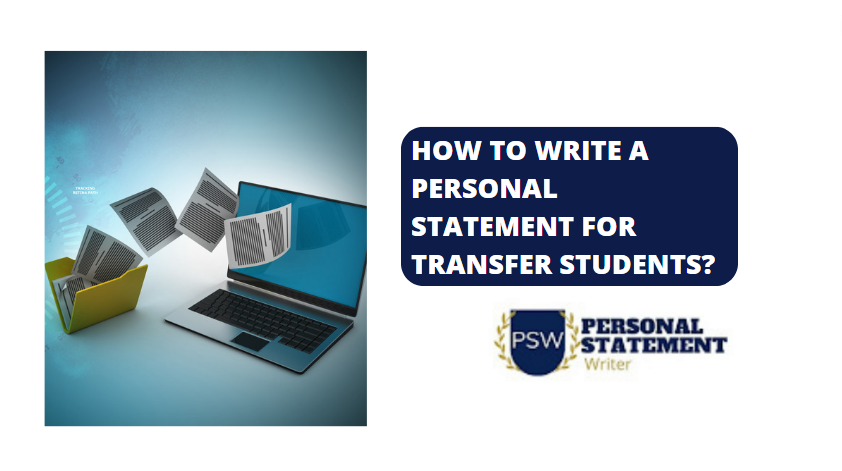
Leave a Comment Cancel Reply
Your email address will not be published. Required fields are marked *
Save my name, email, and website in this browser for the next time I comment.
- College Study Abroad
- College Study Abroad Blog
How Do I Write a Personal Statement for Study Abroad?
September 26, 2023
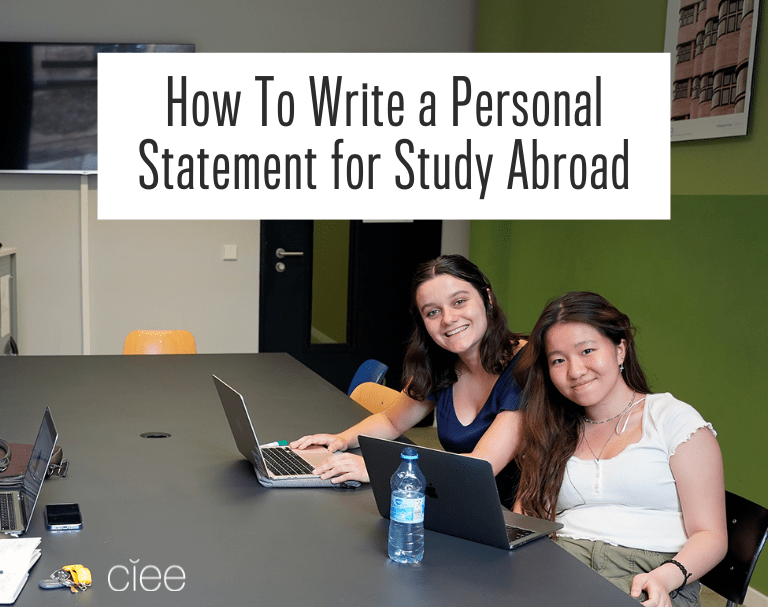
Programs for this blog post
Authored by:.

Writing a personal statement is an important aspect of the study abroad application process. However, if you’re unfamiliar with the practice, it can seem overwhelming. Have no fear – CIEE is here! Let’s review how to write a personal statement for study abroad.
What is a Study Abroad Personal Statement?
First things first. What even is a study abroad personal statement? Knowing the definition of what it is will help you write one.
Simply put, a study abroad personal statement is a component of your CIEE application, specifically in the CIEE scholarships and grants portion (which every student should fill out, by the way). It is a brief essay (300 words) in which you explain how a CIEE study abroad program will impact your college experience and/or your future career plans.
Read More: How to Apply to a Study Abroad Scholarship at CIEE: 4 Steps
What Are Study Abroad Personal Statement Examples?
To give you a better idea of how this content should develop, take a look at a few short study abroad personal statement examples:
- “Partaking in the Arts + Sciences program in Cape Town , South Africa will further my passion and dream career in public health by volunteering with local health and medical organizations and learning how to better support people in historically complex socioeconomic situations and aid them in finding the resources they need equitably.”
- “The Sustainability + the Environment study abroad program in Monteverde , Costa Rica will provide me with the opportunity to gain hands-on experience in a variety of different environments, like the Lowland Rainforest, and conduct research alongside professionals in the field. Eventually, I want to be a researcher that helps bring sustainability and conservation issues to the forefront of each and every country.”
- “I want to be a Spanish teacher. I have always loved the language and learning more about diverse Spanish traditions, and there’s no better way to do both than by living and breathing the language and local culture during a study abroad program in Seville .”
While your own study abroad personal statement will be a bit longer than these quick topic sentences, these examples directly explain how a CIEE Study Abroad experience will enhance a student’s passions and general career aspirations.
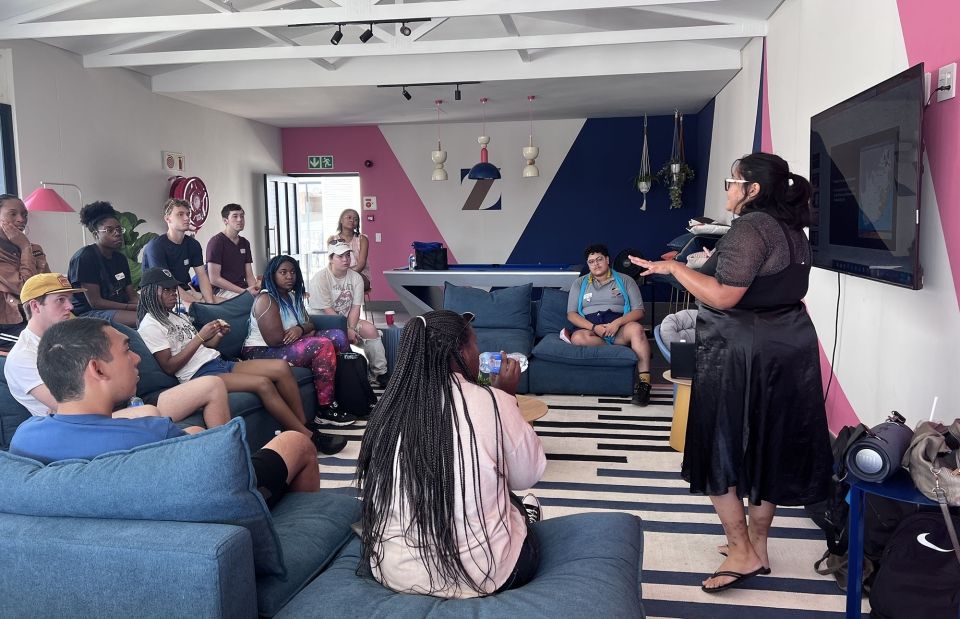
How to Write a Personal Statement for Study Abroad?
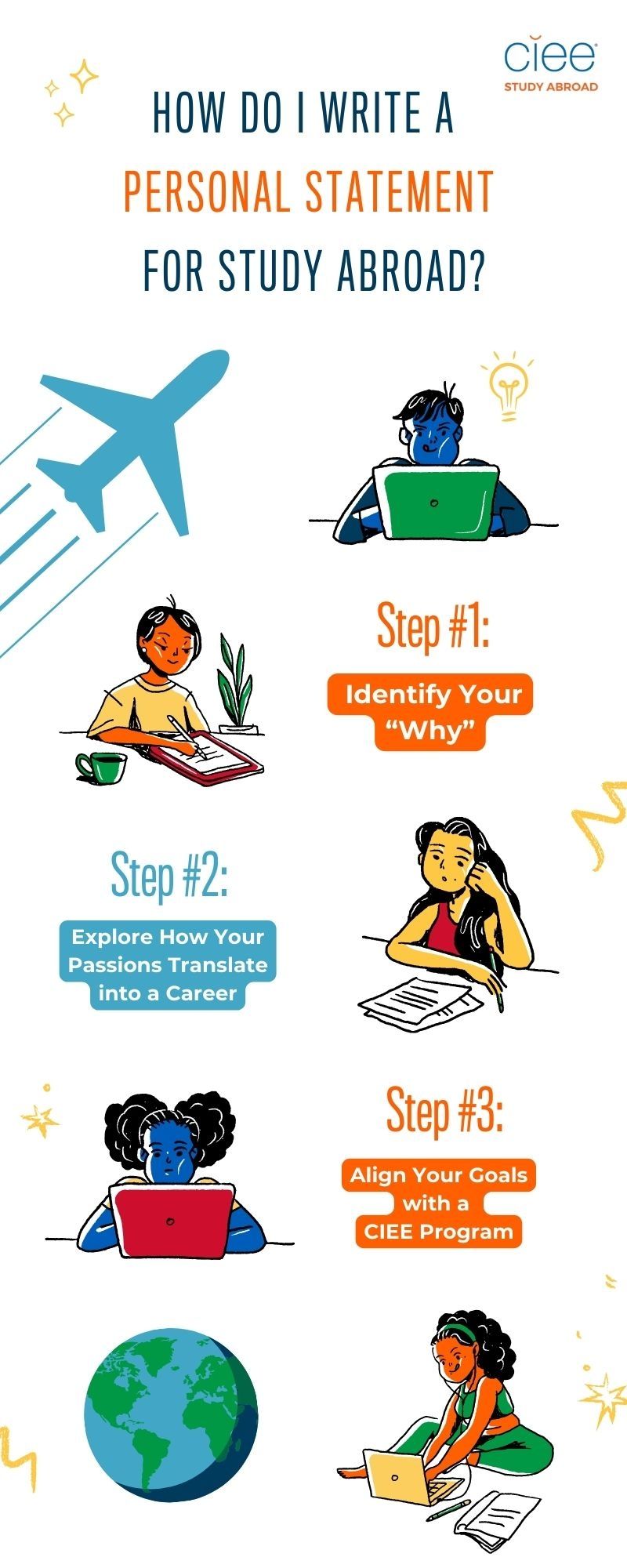
We have a few quick tips that will help you write your personal statement for studying abroad.
How do you start a personal statement?
Step #1: identify your “why”.
The best way to start a study abroad personal statement is by identifying what you’re truly passionate about. This should be an easy start – if you’ve always been enthusiastic about history, explain why. If you love Japanese manga, explain how you got into it. If you’re an avid hiker, describe when you first fell in love with a trek. Be yourself when writing about topics or activities that are important to you – we want to hear about it!
Read More: What are Your Goals for Studying Abroad?
Step #2: Explore How Your Passions Translate into a Career
Next, think deeply about how you can turn your passions into a career, or at the very least, how you plan on practicing your interests in the future, whether in college or in a professional capacity.
Referencing our former examples, if you’re fascinated by history, you might have plans to go to graduate school and study archaeology. As a manga lover, you might start a youth club on the topic in your local community. As an avid hiker, you might want to become a professional conservationist to not only keep your beloved trails intact, but also to protect wildlife and natural sanctuaries.
Read More: How to Put Study Abroad on Your Resume: 4 Steps
Step #3: Align Your Goals with a CIEE Program
The last step is putting it all together and aligning with CIEE study abroad programs. Once you’ve detailed your passions and how you want to incorporate them into your future plans, pinpoint which CIEE study abroad program will help you fulfill your goals.
As a history and archaeology lover, studying abroad in Greater China , with ancient battlefields and some of the most impressive structures ever built, might be the best opportunity to kickstart your career. As a Japanese manga fan, heading to Kyoto , home to the world’s first manga museum, will help you dive deep into the subject matter. To continue your hikes, traveling to the iconic Blue Mountains in Sydney will be your best bet.
Read More: Is Studying Abroad Worth It? 10 Outcomes of Studying Abroad
How long should a personal statement be?
Word counts for your study abroad personal statement will vary by CIEE program and by host institution (the university you’ll be studying at overseas). Prepare to write at least 300 words, which is a little more than half a page, single-spaced.
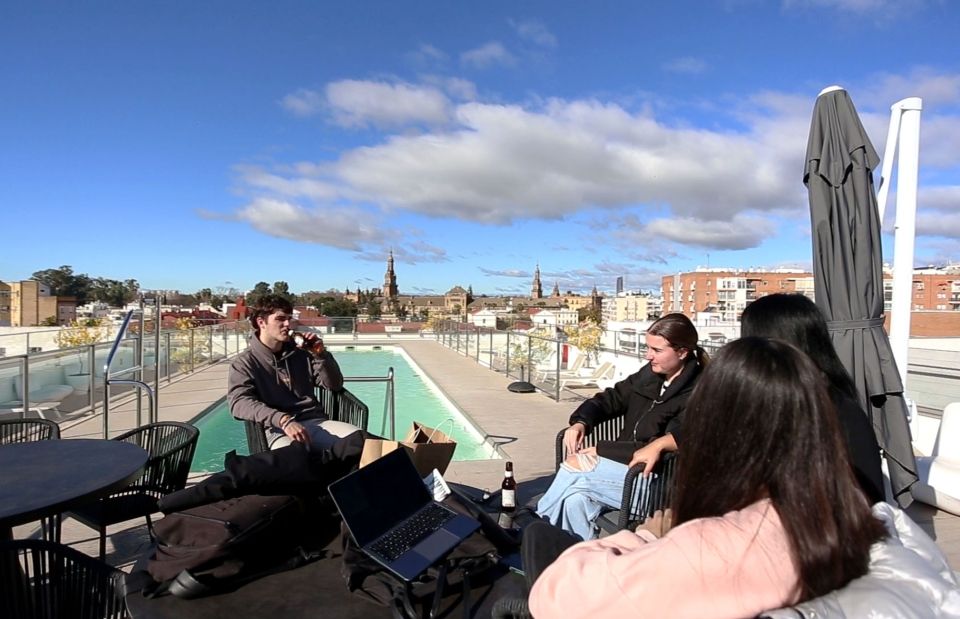
Does CIEE Require a Personal Statement?
CIEE’s study abroad personal statement requirements vary by program and not all guidelines are the same. Generally speaking, you should expect to be required to complete a personal statement if you decide to apply for CIEE funding (which, you totally should, as CIEE awards thousands each year to students like YOU!). Outside of any CIEE personal statements you may be required to complete, you should also check with your school’s study abroad office to see what their requirements may be.
Make the World Your Classroom
While writing a personal statement for studying abroad may not be required based on your program of choice, it’s still incredibly valuable, at the very least, to think about how a study abroad program will impact your college experience and/or future plans. Establishing this will provide a lot of meaning to your adventure and will really help you become the best version of yourself.
EXPLORE PROGRAMS
- Planning/Packing
Related Posts
Postcard from Abroad: Learning to Leave My Bubble in Berlin, Germany
By Vincent DiFonzo Almost every time I ride on Berlin’s metro system, the U-Bahn, I am reminded of one of the many little quirks of living in Germany—the German stare... keep reading
- Activities & Excursions
- Best Time to Study Abroad
- Eat, Drink, Explore

Kate Miller, Open Campus Student: “I have had a life changing experience during my time here”.
Kate Miller is one of our Open Campus students of this Fall Semester 2023. She has been studying and doing her internship at a local startup called Tuesday Coworking, environmentally-conscientious... keep reading
- Internships
- Open Campus

How to Prepare for Study Abroad: 10 Things You Need to Know
Prepping for the adventure of a lifetime can be exciting and overwhelming. All at the same time. That’s why we’ve compiled a list of the most important things to consider... keep reading
© 2024 CIEE. All Rights Reserved.
- Privacy Notice
- Terms & Conditions
Motivation Letter / Statement of Purpose
Learn how to persuade the admissions team at the university to give you a place by using your personal statement.
- Types of content that should be included in your motivation letter
- How to format a personal statement for university
- 5 Tips to make your personal statement more interesting
- Mistakes to avoid when writing your personal statement
- Samples of university personal statements
- Difference between personal statement, cover letter and motivation letter
A Guide For Writing an Effective Personal Statement For University Admissions
When making your applications to your universities and colleges of choice, writing your academic personal statement is the first opportunity that you have to show your personality, to get across what motivates you, and ultimately to clarify why the admissions staff at your chosen university should accept you on the course you want.
Here you will find recommendations and advice on structure, content, as well as what mistakes to avoid when creating your personal statement for university or college.
Keep in mind that if you are applying to UK universities through UCAS you can only write one statement even if you apply to five different courses.

Types of Content That Should Be Included in Your Motivation Letter
Most probably you know that you would be an excellent addition to any university, but we often freeze when we’re put in a situation where we have to explain the reason why. Writing about ourselves is not something most of us do under normal circumstances, so getting some practice before you sit down to write your first draft of your personal statement can help you organise the topics you want to speak about in your mind.

Below you will find two planning tables to help you quickly and easily clarify what kind of skills and information about yourself you should include in your motivation letter for university.
Consider sharing some information about how you arrived at this point in your academic life. What exactly makes you passionate about the course you’re applying for compared to any other course?
What challenges have you faced and overcome? This doesn’t have to be a dramatic example, but you can feel free to describe experiences such as conquering your fear of public speaking, being the only person in your family to go to university, and other ordinary situations. This is your chance to show off some of your virtues, such as how determined and hard-working you are when you have a goal.
Motivation Letter Content Planning Table
Using this table you can start to create a vision for what you want to speak about, and what story you want to tell the reader.
Around two thirds of your personal statement should consist of the information that you use to answer these questions, and to do that you have to be aware of the character limit that has been established for your statement. In the case of UCAS’ personal statement, this is set at 4,000 characters (between 570 and 1000 words).
The remaining third of the personal statement should be about yourself and why you believe you’re a good fit for the course that you are applying for, with this being focused on what would make you a valuable addition to the university. You should only include information that directly supports your case for studying at your chosen university , rather than talking about the dreams that you’ve had since you were a small child. The golden rule is that the more recent the information, the better , because Admissions Selectors want to know about the person you are today.
Filling out the table below and having it with you as you write your personal statement can help you remember to include the qualities that you possess.
Brainstorming For Skills to Include in a Personal Statement
As always, all information that you choose to include should build upon the narrative of why the university should select you for the specific course you are applying for . This can be easy to forget while you’re expanding on your talking points.
Even though there are no rules written in stone about how to write a successful university application, you now have the information you need to get started with creating a unique and impactful personal statement that demonstrates to your chosen university why you should be accepted as a student.
Writing a personal statement that truly manages to make the author stand out from the crowd is a process that can take days or even weeks to finalise, while you get feedback from your teachers, friends and family. For this reason, start drafting your personal statement today and you’ll see that all you have to do is be yourself and present yourself in a way that is honest, authentic and enthusiastic.
Hopefully, your mind is buzzing with ideas of what you’d like to speak about in your motivation letter – just make sure you follow the etiquette of how to present everything before you get started!
How to Format a Personal Statement For University
One of the main decisions you need to make about how to present your statement is how many paragraphs should be used. While there are no absolute rules about what admission staff will like, it is generally accepted that between five and seven paragraphs with a maximum of 500 words is the best approach . The reason for this is that you have to touch on a variety of topics, and separating them in this way allows you to organise them logically and make your point effectively.
You should speak in the past-tense when sharing your story of how you got to where you are today as a student and individual. Towards the end of your personal statement, you can change to the present-tense to give the reader a sense of narrative and purpose.
For example:
- “During my work experience placement, I had the opportunity to…”
- “From time to time, I volunteer as…”

Again, although there are no rules with how you should write, there are some formats that are reliable and have survived the test of time. One example of a format that helps applicants write clear and concise statements is the following template:
- Start by explaining why you have chosen this course , and very briefly let them know a little about your background. Keep it simple!
- Demonstrate to the reader what you know about the subject by mentioning current developments or important research topics, and how they impact areas of society in a broader way. Universities are not just looking for people who can keep up with the news, but people who show vision and enthusiasm. Be sure to check out the downloadable prospectus that your preferred universities offer, to make sure you have really understood what is being offered.
- Now is the time to speak about any extracurricular activities or experiences outside of academia that are relevant to the course you are applying for. If your experiences don’t directly relate to the subject, you can try to explain how the skills that you developed during these experiences will be meaningful in the context of your university course. With that said, be careful not to exaggerate here, as you may later have to answer questions about anything you include.
- Conclude your statement in a professional and formal tone by thanking the reader for their time, and expressing your eagerness to start university in the near future.
What to Keep in Mind When Writing Your Personal Statement

The way you write your personal statement gives the admissions committee an instant impression of how much care and attention you are capable of while producing an important piece of work, and for that reason we want to give the best first impression possible.
It’s important to remember that the university is not trying to trick you when they ask you to tell them about yourself . They don’t know you, and they would like to know more about what you do with your time, and where you would like to go in life.
Focus on common themes that your courses of interest share, and avoid including the specific course or university names in order to keep it general . Those students who are applying through UCAS can find information on important deadlines here .
With everything in the right place in your motivation letter, the next task is to learn how to make your motivation letter as interesting as possible, as well as avoid some of the common pitfalls and mistakes.
5 Tips to Make Your Personal Statement More Interesting
Maybe you already know what type of content you want to include in your personal statement, and you just need a little help with how to structure everything. The following suggestions are a good place to start:
- An introduction that immediately stands out from other applicants. It’s important to appreciate that the people who read university applications have seen a lot of the same thing, so this is your chance to be different and grab the reader’s attention. This does not mean trying to be as unorthodox as possible, but just show your personality and don’t try to impress the reader.

- What your goals are and how the selected course will help you achieve them . To make sure that you give university tutors the impression that you fully understand what their courses are about, you should do some of your own research by reading the university’s prospectus. These can usually be downloaded from their official website, and often include external links intended to help the applicant understand the approach of a particular course.
- Why you have a passion for your chosen subject. Throughout your application, you should show how passionate you are about the subject in question. Was there an event in your life that made you pursue the path that you’re on? Let them know about it!
- Show ways that you have immersed yourself in the subject outside of the classroom. Admission tutors are looking for evidence that your interest in your subject continues even when your classes are finished for the day. A simple but effective way to speak about this is highlighting the books you have read on the subject, or workshops and seminars you have attended in your own time.
- Your participation in clubs or societies . This does not need to be strictly related to the courses you are applying for, as admission committees value your intellectual and creative ability to relate your experiences to your subject of choice.
Consider focusing on topics such as public speaking, staying organised, and the discipline and perseverance required to excel in a sport. Speaking about your experiences in this way will communicate that you are a person that pursues their goals earnestly.
Common Mistakes to Avoid When Writing Your Personal Statement
Writing a personal statement is a process that can take time, and it would be a shame to commit the simple and avoidable mistakes that some students make. In this list you’ll find some of the most common errors when it comes to personal statements.

- Avoid using your application as a chance to show how many sophisticated words you know . This is likely to be distracting from the overall point of what you’re trying to convey.
- UCAS and other organisations all use software designed to detect plagiarism , which easily detects when applicants use parts of their colleagues’ personal statements. Writing your own application is important, because you can be asked unexpected questions later during your interview.
- Related to the previous point: always tell the truth!
- Try to resist the temptation to procrastinate with getting started on your statement , as this is another common mistake that applicants make. This will be a process of writing multiple drafts, and getting your friends and family to proofread for you, and these things can take longer than you expect to get done.
- Humour and quotes are usually inappropriate . This doesn’t mean that you have to take an overly serious tone, but you simply never know whether the member of staff reading your personal statement shares your sense of humour. In the case of quotes, this is considered a cliché writing technique by most admissions officers, and if you do choose to use one then there should be a clear reason to justify it.
In the next section you will find some explanations from tutors at Oxford, Greenwich and Bangor University on their typical reasons why they might reject an application.

There are many potential reasons why admission staff might consider that an applicant isn’t suitable for the requested course, and the following are some of the points of view that tutors expressed when asked to describe their usual reasons for rejecting a personal statement: “I work at Bangor University, and I couldn’t tell you how many times I’ve been reading personal statements and I see a sentence mentioning the name of a completely different university or course than the one the student is applying for. This makes a bad impression because it shows that the student hasn’t really planned their application properly, and this qualifies as an instant rejection for me.”
“Something I personally find off putting in their personal statement for Media Studies is when the student talks too much about their Dad who owns a radio station, or their Auntie who is a journalist. Not only is this irrelevant for us, but it gives the impression that the applicant is trying to look good based on the achievements of their family . I only want to know about the applicant and what motivates them.”
From these professionals’ perspectives we can see that a light, authentic and concise style is preferred . Even with their helpful points of view, you can benefit from checking out some visual examples of university personal statements.
Samples of University Personal Statements
Examining a diverse variety of university personal statements can help you get a sense of which tone and style you would like to use in your own statement , as well as the opportunity to observe some of the shortcomings or mistakes that have been made by others so that you can avoid making them yourself.
Below you can find two examples of personal statements from students, and a brief summary of their strengths and weaknesses. Also you can check out this enlightening two minute video from a Dartmouth Former Admissions Reader to learn what admissions officers look for in college applications.
Personal statement from a biochemistry student :
“When I was eleven years old, my father was involved in a road accident with a lorry. His injuries were quite serious, and he was only able to recover after receiving a blood transfusion. Ever since then, I’ve had the goal of working in transfusion science myself, to do for other families what those professionals did for mine. As I’ve had the privilege of knowing what I wanted to do with my life from an early age, I’ve been able to do extensive research into the skill set that these kinds of scientists must have. I consider myself an efficient and focused person, which are critical attributes when it comes to being responsible for patients’ lives. I feel that I am academically prepared to take the next step on this career path due to my deliberate A-level choices in Biology, Chemistry, Psychology and Maths.
Due to studying both biology and chemistry, I’ve been able to develop laboratory skills that will serve as a good foundation for more advanced techniques at the university level. Maths has improved my ability to interpret numerical information logically, while Psychology has given me the chance to improve my writing skills.
During my time at school, I have always taken on positions of additional responsibility. I was elected as the form captain twice, and also Head Girl in my last year. This position was a challenge, because it was my job to represent my school at important events, but it was this challenge which sharpened my public speaking skills. I’ve received prizes for both biology and maths, and I was also awarded the Stubbs Cup, which I consider one of my main achievements.
In my spare time I go for long walks in the countryside with my two dogs, which are energetic huskies. Taking care of all their needs by myself requires discipline, since they are such a demanding breed. I also use this time to socialise with other people who are out with their animals, as I love to meet new faces. One of the reasons I’m excited about university is for the chance to meet so many new people.
Apart from that I also like to lift weights in the gym, because I find that keeping healthy makes me more motivated for other areas of my life. The gym I attend has a service that looks after clients’ children while they work out, and I recently started working there because I love working with children. In order to work here, I had to earn my first aid certificate.
I think that a career as a biomedical scientist would be an enriching and satisfying career for me because it’s a job that both improves and saves lives. Taking the next step to university has been my main aspiration for a long time, and I look forward to the challenges that it will bring.”

Personal statement from a drama student :
“From an early age I have always been fascinated by the stage. For me it’s much more than entertainment, as I believe that a well-produced drama production can make an emotional impact on an audience. My main involvement with the craft has been through acting, however I’m also very interested in learning other aspects of theatre such as lighting and set design in a university setting.
For my GCSE Drama final production, a group of us produced a play based on a short story by A.L. Kennedy. Because there were only six of us in the group, we shared a lot of responsibility. I played one of the main characters and was also in charge of obtaining the props we needed. These tasks were enjoyable but the most challenging part of the production was to adapt the story for the stage, and produce a script as close to the original story as possible. This was a demanding but enjoyable job and really opened my eyes to the complexity of adapting stories to the stage.
As well as Theatre Studies, my other AS-levels are in English Literature, Sociology, and Biology. In English Literature we have just completed a module on plays in which we studied Death of a Salesman by Arthur Miller and Shakespear’s Henry V. I go to the theatre as often as I can, and have seen many amateur and professional productions. My favourite playwright is Willy Russell. I think all his plays provide an interesting social commentary, and successfully blend comedy and tragedy. I have seen many musicals, but Blood Brothers is by far my favourite; I have now seen it four times! I am looking forward to discovering more playwrights while at university.
My interest in drama and the theatre takes up a lot of my social life. I have taken part in all my school’s productions and am also involved in a local drama group ‘The Bournemouth and Boscombe Light Operatic Club’ – BBLOC for short. Every year we hold a major production, the most recent being Oh What a Lovely War. I value the experience of being part of this group as I get to work with people of all different ages. I also have a part-time job in a local Beefeater restaurant. This job has taught me the value of being able to work as part of a team, and I think helps me improve my performance within BBLOC and at school, as good teamwork is crucial to a successful production. I am looking forward to joining a drama society at university, and also possibly a film society, as cinema and film are another of my passions. I feel I have a lot to contribute to university life and hope you will consider me for a place at your university.”

If you have made it this far then you now have a plan of attack for how to make an outstanding motivation letter – well done! Click here for tips on how to structure a strong academic CV and how to request notable letters of recommendation .
Frequently Asked Questions About Motivation Letters
What is the difference between a personal statement and a motivation letter.
The two terms are often used interchangeably, but if we want to get specific about it then in reality a motivation letter invites the writer to speak about the academic or work position they are applying for will be a crucial step in their career or personal development.
A personal statement’s content is more likely to be oriented in the past, describing the activities and achievements that have brought you to where you are today.
In other words, very similar information appears on both documents, but the story that you’re expected to tell with that information is where the difference lies.
What is the difference between a cover letter and a motivation letter?
A cover letter is usually used in the context of applying for a job position, with the intention of demonstrating how the experiences that you’ve had and the skills you’ve developed make you the perfect candidate.
Motivation letters are generally used for describing to the reader where you want to go in the future, and how that would become a real possibility by becoming a part of their organisation.
What should I write in a motivation letter?
The answer to this depends on what type of organisation you want to apply to, because the content and style can change significantly depending on the context. Just a few different scenarios that would change the delivery of your motivation letter might include:
- Student exchange programmes
- Internship positions
- Scholarships
- Job selection processes
- Undergraduate education
- Graduate education
The post above is intended to help anybody drafting their motivation letter in an academic context .
Craig Plunkett
Fabiola López Marín
Related articles.

Letter of Recommendation / Reference

Resume/ Academic CV for Students Studying Abroad

Student Accommodation Guide

UCAS Guide For International Students

How to Write a Stellar Personal Statement for Your Study Abroad Application
Crafting an Outstanding Personal Statement for Your Study Abroad Application
Mon Oct 2, 2023
Mastering the Art of Writing an Impressive Study Abroad Personal Statement

Introduction:
Embarking on a journey of studying abroad is an exciting prospect. It opens doors to new cultures, perspectives, and academic experiences. However, before you can hop on that plane, there's one crucial step you need to master: crafting a compelling personal statement. This piece of writing can be the key that unlocks the door to your dream program. Here are some essential tips to help you write a personal statement that stands out.
1. Start Early and Plan Ahead:
- Begin the process well in advance. Allow time for brainstorming, drafting, revising, and proofreading. Rushed personal statements often lack the depth and clarity needed to make a strong impression.
2. Highlight Your Motivation and Goals:
- Start by explaining why you're passionate about studying abroad. Share your academic and personal objectives. Admissions committees want to know what drives you.
3. Showcase Your Unique Qualities:

4. Connect Your Goals to the Program:
- Demonstrate why the specific program and university are the right fit for your aspirations. Explain how their offerings align with your academic and career goals.
5. Tell a Compelling Story:
- Engage the reader with a narrative that illustrates your journey, challenges you've overcome, and lessons you've learned. A well-told story can be incredibly impactful.
6. Be Specific and Concrete:
- Avoid vague or generic statements. Provide specific examples to support your claims. This could be in the form of academic achievements, projects, or relevant experiences.
7. Address Weaknesses Positively:
- If there are gaps in your academic record or other potential concerns, address them in a positive light. Focus on what you've learned and how you've grown.
8. Demonstrate Cultural Openness:

9. Edit, Revise, and Proofread:
- Writing a stellar personal statement requires multiple rounds of editing. Check for grammar, punctuation, and coherence. It's also a good idea to have someone else review it for feedback.
10. Reflect Your Voice and Style:
- While it's important to be professional, don't lose your own voice in an attempt to sound overly formal. Let your personality shine through.

In conclusion , writing a stellar personal statement is a crucial step towards realizing your dream of studying abroad. Take the time to reflect on your motivations, goals, and unique qualities, and be sure to craft a narrative that captivates the reader. With careful planning and thoughtful writing, you can create a personal statement that sets you apart from the rest. Best of luck in your study abroad journey!

{{Sameer Kumar}} I graduated from IIT Kharagpur and have been teaching Physics and Maths to Engineering (IIT-JEE) and Medical (NEET) entrance examination aspirants for the last six years.
You may also be interested in
- See all Countries
- United Kingdom
- Netherlands
- Switzerland
- Online Learning
Writing a Personal Statement for Studying Abroad

When you are applying for a study abroad program you may be asked to write a personal statement. If you aren’t sure about what a personal statement is, what it looks like, or what it includes, you can find out right here with our guide to writing a personal statement…
What is a personal statement?
A personal statement is often the only opportunity you have to set yourself apart from all the other applicants who also want to study your chosen course. Many admissions officers use it to make their final decision on a shortlist of candidates. Primarily it is a way for them to find out the reasons behind your application answers but they will also want to know what makes you unique. What will you bring to your class that is different? You need to convey your enthusiasm for the subject making sure you give an honest explanation.
You may also need to write a personal statement for a scholarship application, which could mean the difference between studying and not. There is no need to panic though as writing a personal statement for studying abroad is not as hard as it sounds. Just follow our guide and you’ll have a great statement in no time.
What does a personal statement look like?
Most personal statements are just one or two pages that focus on one or two clear themes, and give an in depth explanation of your abilities or interests in that area. Don’t try to fit in your entire life story or all of your achievements, as this will waste valuable space.
The best personal statements have a clear structure – a compelling introduction, between two and five body paragraphs that give solid reasons or explanations for studying, and a strong conclusion. But before you start writing, make sure you read any instructions that were sent. Not all personal statements are the same so be sure to check what your admissions office requires. Once you know what they require, make sure you keep to that format – if they want two A4 pages double-spaced, then don’t send in four pages. If they ask you to answer three specific questions, do so clearly. Otherwise your statement could be rejected before it has even been read.
What does a personal statement include?
- A strong introduction
- A summary of your achievements
- Details of your skills and abilities
- An explanation of why you would be a good fit for the degree or scholarship
- A conclusion that rounds out your statement nicely and brings it all together
Introduction
Your introduction needs to grab the reader’s attention. It sets the tone for the rest of the statement. Avoid clichés or long-winded explanations. Instead, spark their interest and get to the point – in just one paragraph. Because the introduction is so important, you may want to write it last. That’s OK!
In the body of your personal statement, you need to demonstrate some reasons behind your theme. Think of this as an argument, just like an essay – and just like an essay, you should back up all of your statements. Don’t just state your achievements, explain what is behind them, giving examples of when you have shown certain abilities or skills, as this adds credibility to your argument and can make a big difference in making your statement stand out from the crowd. You are trying to persuade the reader that you are the best possible student for this class or scholarship so it’s also a good place to mention achievements that you were unable to include in your main application, but only if they are relevant.
Your conclusion needs to flow from the rest of the copy. An attention-grabbing sentence at the end will help give impact to your statement, so be sure you emphasise your desire to study. You may wish to include a specific reason for choosing that university in your conclusion – some unique feature that ties in with the points you have outlined on your goals and experience. It’s a good way to show that you have researched that institution, and that this is not just a generic statement.
Whenever possible, leave your statement overnight and then look at it again with fresh eyes. Check that it flows well and ensure there are no grammar and spelling mistakes. Now you’re ready to show it to some friends and relatives asking them for constructive feedback. A second point of view can really add to your statement and is well worth taking the effort. Personal statements are so important and could be the reason for your application to the institution or scholarship failing.
If you’re not confident about your English ability, ask a fluent English speaker to proofread it. This is critical, as your personal statement demonstrates your ability to write and communicate in English when you study. For many admissions officers, clear English is the first thing they look for.
A good writer always thinks about the reader’s point of view. In this case, the admissions officer may have only two minutes to review your statement. He or she may read thousands during the admissions process. So keep it clear, simple and to the point.
SEE MORE: 10 reasons your scholarship application may fail
Following this guide will help you to write an excellent personal statement. If you are still unsure of the course you wish to apply for, you can use our course search tool at the top of the page to find your ideal university.
Related topics
- International Study Advice
- International Study Visas
- English Language Testing for International Students
- Funding and Scholarships for International Students
- How will studying abroad help your career prospects?
Search for courses now
The latest articles on studylink.com.
The latest articles from study abroad providers and StudyLink.com to hep you on your study abroad journey.

Hartpury University

Fontys Academy for the Creative Economy

Vlerick Business School

IC University of Applied Sciences – Amsterdam

Strathclyde Business School

TBS Education in Barcelona
International study advice
Read our key advice article to help you make the best decision for your education and start your International study adventure.

In this article we look at how to approach choosing where in the world you would like to study.

Read StudyLink's suggestions on your first steps when deciding where to study abroad, with helpful tips to make your decision easier.

Find out more about English language tests, your options and what is required as an overseas student.

StudyLink.com take a detailed look into the costs of studying abroad and all the aspects that you should budget for when embarking on your studies.

We answer 10 common questions about applying for a student visa to help make your visa application quick and easy.

Find out more about international student visas for studying abroad, as well as how, where and when to apply for yours.

Find out more about funding and scholarships for international students, and what financial assistance might be available to you.

How to choose a course that fits you? Check our top tips on choosing which course is best for you to help you make an informed decision.
Sign up to StudyLink.com
Sign up to StudyLink.com, the home of quality study abroad advice.

- Skip to main content
- All Articles
- Study abroad info Articles
- Study abroad info Applying to university
- Choosing where to study
- Choosing a subject
- Financing your studies
- Getting your visa
- Before you leave
- Housing & accommodation
- Once you arrive
- Post-study life
Top tips on writing a personal statement
Read our guide to writing a personal statement, including how to approach writing it, what you can write about and more.

Almost every university will ask you to write a personal statement to gain a clearer idea of who you are and why you want to study a particular course. This is your chance to demonstrate your interests and skills to show that you should be considered for a place. If you’re an eighteen year old undergraduate, you have likely never attempted something like this before. When writing extensively about all your qualities, there’s also a delicate balance with not sounding repetitive or egotistical.
Writing a personal statement can seem daunting at first, but we’re here to point you in the right direction with this step-by-step guide.
How to start a personal statement
The best way to begin your personal statement is with a plan. Your writing needs to be concise and to the point. Universities receive a lot of personal statements, with many indistinguishable from one another. You should take some time to think about what to include. Here are a few tips to help you start:
- Write out a list of your reasons for choosing the course
- Why do you think you would benefit from this teaching?
- Mention any previous experience that relates to the subject
For some courses, work experience is obligatory. However, for others it is valued, but not compulsory. For example, if you want to study veterinary science, relevant experience tends to be a must, such as volunteering at an animal shelter or veterinary clinic.
Remember that your personal statement could be the deciding factor when being considered for a place on your desired course. Think about what each paragraph is trying to convey to avoid waffling. You might even want to ask a teacher, family member or friend about your strengths. Sometimes it can be hard to think of your achievements so a gentle nudge from others might be beneficial. In fact, at most colleges and sixth forms, teachers will have a wealth of experience when it comes to personal statements, so make sure you ask for help if you’re a bit stuck.
Complete all required information
It may seem basic, but fill out ALL the required information about you on the page. By failing to do so, you can come across as sloppy or inattentive to details. From an administrative perspective, missing details makes the lives of admissions staff tougher, and they are the ones with your destiny in their hands. It simply makes sense to appear as favourably as you can without them having met you. If they have to struggle to process your application because you have left out mandatory information, they may simply pass and move onto the next application in their very large pile.
What to include
Most prospective students around the world will be writing personal statements as part of their university applications, but there are a few requirements for international students in particular. See below for the key content you need to include:
- Proof of English language proficiency (e.g. IELTS/TOEFL)
- An explanation of why you want to study in that country
- Why you want to study abroad instead of in your home country
- Any skills you’ve acquired e.g. music grades, languages
- Related wider reading
- Work experience/volunteering/shadowing
- Trips abroad
- Clubs/activities you’ve been involved in
- Career/academic goals
Don’t worry if you haven’t got any work experience, you can still sell yourself in other ways. For example, computer skills, interests and hobbies. Do you regularly visit museums and galleries? Are you part of a sports team? All of this helps to paint a picture of who you are and the points to the skills you might have gained.
Fancy a quick break? Watch our video of graduates reading back through their personal statements:
How should I write it?
The tone of your personal statement needs to be formal yet enthusiastic. Try to avoid humour as this could be off-putting and may be misunderstood by an admissions tutor. You should also steer clear of long sentences as this can affect readability. Aim for clear and concise writing, as this will help the reader to understand your key points.
To check whether your personal statement makes sense, read it out loud either on your own or to someone else. This will help you notice any grammatical or spelling mistakes which you might miss just reading silently. Making these mistakes could suggest that you didn’t double check your work or that you couldn’t be bothered. So, make sure that you triple check and proofread before submitting.
Show personality, but not too much
What you should take away is to distinguish yourself the best you can in your personal statement. You have to get across the individual that you are. While you may be applying for the same course as a hundred other students, you should stick out as unique and be remembered; just ensure it is for the right reasons! Unless requested to do so, do not include an image of yourself, nor anything to make your statement stand out. You will be asked to submit a portfolio of your work if you need to, for particular courses like art .
The tone of the statement should always be formal. Mentioning extra-curricular activities is always encouraged as they help distinguish you as a real person, as long as they reflect in some way the course you are applying to. Charitable endeavours or those activities affiliated with your previous educational community are usually received well. Think carefully about what your activities and personal interests say about you as a potential representative for that institution.
Don’t go wild with a thesaurus
Sometimes keeping things simple is for the best. If you can say something in five words rather than ten, do that. It can be tempting to use a thesaurus or look up synonyms online to appear more intellectual; but if you use too many in the wrong context, a sentence can lose all meaning. This is especially true if English isn’t your first language; if this applies to you, then writing a statement to even a good standard will impress whoever reads your statement (they will be well aware that you are an international student).
Most of all, make sure your statement is easy to read and flows well from one point to another in an order which makes sense. If you use a word incorrectly, it will stand out and be confusing. Written assignments may well be a key part of your assessments, and your statement will indicate if you will be capable of these. The key thing is that the officer enjoys reading your statement, and may one day want to meet you.
When should I start writing my personal statement?
Your school/college/sixth form should tell you when to start thinking about university and when to apply. As institutions can set their own application deadlines, particularly for international students, you should check the website of the university you are applying to first. There is such variation that we cannot provide a single deadline date for your personal statement.
How long does my personal statement need to be?
The word count varies according to each country and even each institution in some cases. In the UK, there is a 4000-character limit which equates to roughly 500 words. In Australia, you should aim for 700 words (approx. 1400 characters) and in the U.S. the recommended length is about 500-800 words. So, in general, a personal statement can be anywhere between one to two pages long, but we recommend checking with the institution you are applying to.
Now that you know more about writing a personal statement, why not start planning yours today!

IELTS vs. TOEFL: Which should you take?
All international students who want to study in an English-speaking country must show they have the required level of English. There are a few English language exams that are accepted by universities all over the world. We’re going to focus on two of these: IELTS and TOEFL. Before we continue, let’s look at what these names mean. IELTS is the International English Language Testing System. TOEFL is the Test of English as a Foreign Language.

Top 20 FAQs about the IELTS exam
What is the IELTS exam? The International English Language Testing System (IELTS) is an English language exam which is recognised worldwide by more than 11,000 universities, employers and immigration government bodies. The IELTS test explained What are the benefits of the IELTS test? As mentioned above, the IELTS exam is recognised all over the world and is used for university education and immigration purposes. It’s

Applying to university: Essential documents you need
You’ll learn as an international student, that nothing can be done unless you can successfully prove who you are. In countries where immigration policy and security are of utmost importance, this can be easier said than done, with long procedures involving lots of paperwork and waiting. Originals vs. Copies However, you can make things a lot easier for yourself if you keep to hand a file containing the following important documentation. This

What are the benefits of the IELTS test?
As a prospective international student, you’ll know the importance of demonstrating your English language proficiency as part of the university application process. You’ll also know that several English language tests can be included as part of the entry requirements. With all of these options available, you may wonder what sets them apart, and what makes IELTS so popular. We're here to answer these questions and more, explaining the benefits of an IELTS test.

Get in touch
- Become a Study Centre

Personal Statement Tips for International Students
Posted: 25.10.2023
- Personal Statement
- University Application
Why Your Personal Statement is so Important
Applying for a place at university – particularly in a foreign country – can be filled with excitement, anticipation and, sometimes, a dash of anxiety. A crucial part of the process is putting together a compelling personal statement – the document that introduces you to the university’s admissions committee, and gives them a glimpse into your academic aspirations and plans.
Crafting a Personal Statement for UK Universities
It’s worth taking the time to create the perfect personal statement, as it will set you apart from other applicants and show the admissions committee why you are the ideal candidate for their institution. So, we’ve put together a few useful tips as to the key elements you should include in your own personal statement.
Why Have You Chosen the Course?
The first thing to do is clearly outline why you chose the course you’re applying for. You should demonstrate a genuine interest in the subject and explain how it fits with your career goals. Be specific about any aspects of the course you particularly find appealing – for instance, particular modules may offer an in-depth study of an area you want to specialise in.
Why Do You Want to Study Abroad?
Choosing to study in a foreign country is a significant decision, and your personal statement should talk about why you’ve chosen to do so. Discuss the quality of education, the cultural diversity and the opportunities available for international students, or any other factors that influenced your choice. Highlight what studying in this country offers you that you might not experience in your home country.
Showcase Your Experience
Ideally, you need to stand out from other candidates, so make sure you include any professional experience you’ve gained. This could be internships, volunteering, shadowing or even placements during your education. If you’re applying for medical programmes or high-ranking universities, they will also look for experience outside your academic career. Bear this in mind during your studies if you’ve yet to gain experience in your chosen field.

Future Plans Once You Have Your Degree
Finally, outline your post-graduation plans. Whether you intend to start work, pursue further studies or contribute to your home country, link these plans with the course and country to which you’re applying, to show the admissions team you have a clear vision for your future.
A Few More Tips for a Winning Personal Statement
- Be genuine: let your unique voice come through rather than trying to fit a mould.
- Stay focused: keep your statement concise and avoid unnecessary details that don’t add value to your narrative.
- Proofread: always read your statement multiple times, checking for grammar and spelling errors.
- Get a second opinion: ask someone else to read your statement to give you a fresh perspective or catch errors you might have missed.
Present Your Best Self!
Remember, your personal statement is your chance to shine. It should showcase your passion, dedication and long-term goals to those deciding your academic future – so make it count!
Need Extra Help?
At NCUK, we’re committed to helping you throughout your application process, so if you need any further support or have any questions, simply get in touch with our team directly.
This site uses cookies to improve your experience, read our Cookie Policy here
Request For University Visits
Request An Appointment

Toll Free :-1800 102 0336 (Within India)
Toll Free:-18001020336
Study Abroad Guide
Writing a Personal Statement for Studying Abroad
August 2017
If you're planning on a study abroad program at an undergraduate or post graduate level, you will be required to write a statement of purpose. Personal statements are one of the most crucial parts of your study abroad application; it demonstrates your ability to effectively write and communicate in English and plays a significant role in the admissions decision making process. When writing your personal statement, it is extremely important that you do not include anything that isn't true, rather discuss what is important to you and the ambitions that you have. Remember this is your chance to stand out from the other applicants. Every admissions office will have certain instructions when it comes to writing one, however, before you begin, it is important to note what these instructions are. Mentioned below are some important points to keep in mind when drafting an essay.

Take Your Time.
When writing your personal statement, ensure that you take your time. Create a draft of what you wish to include, this will help you organize your thoughts. Rushing the process can lead to errors, your best ideas will come to you with time.
While writing, be sure to structure your paragraphs. Writing your personal statement in paragraph form makes it more readable. The strategy here is to have a powerful introduction so the reviewers take notice. The admissions committee want to hear your story and this is your chance to make it a compelling one. Your goal here is to make yourself memorable.
Focus On Your Strengths.
When drafting your statement of purpose, focus on your strengths. In addition to writing about your passions, you can also discuss how past experiences have helped you grow into the person you are today. Be sure to also include why you should be accepted and what you will bring to the program. Your positive attitude will be highly regarded by the university admissions.
Mention What You've Done Outside The Classroom.
Write about any extracurricular activities you may have actively been involved in. For eg, be sure to include any volunteer work or work experience in your statement. This shows how relevant your experiences are to the ambitions you now have.
Plagiarism- Don't do it.
Your personal statement should contain your own work, this means you should not under any circumstances copy material from other sources. Passing off someone else's work as your own is plagiarism and your application can get rejected.
Proof Read.
It is very important that you set aside time to proof read your essay before you submit it. This way you can check for any grammatical errors you may have made while writing. You can also have your friends and family read it; they will be able to provide you with some valuable feedback.
What Edwise Students Saying Abroad Says?
"In my opinion Edwise is the top rated overseas education consultancy , their support to my every stage of plan was very impressive. I would recommend Edwise to everyone who plan for overseas education." Name- J. Ashik Ansari Country- UK University- LMU
"Edwise is really good and provides you with the best services for abroad studies. I thank them for the support." Name- Rushit Trivedi Country- Canada University- Lambton College
"I am very thankful to Edwise for helping me and guiding me in my academics. Edwise has played an important role in my career." Name- Devnani JayP Country- USA University- St.Joseph's University
""One of the best consultants in India I liked the attention that Edwise gives to each student and how they stress on each admission." Name- Ankit R Solanki Country- UK University- University of Hertfordshire
"The staff at Edwise is very friendly and helpful. Edwise efficiently enrolled me in an excellent University without me experiencing any pressure. Thanks for making my Dream come true." Name- Badodariya Dhajrya Subhashbhai Country- Canada University- Fanshawe College
"Edwise went out of their way to help me prepare for my applications even though my course was a unique and a specialized one. They ensured that I met all my deadlines. They over prepare you for the Visa interview which I really appreciated. M whole heartedly Thankfull to Edwise for its good work." Name- Rahul Shindebr /> Country- Ireland University- University College Cork
"Edwise has really helped me in choosing the right university which has enabled me to take a giant step towards a successful career .All the counselors at Edwise are well trained and well versed in providing information to students. Today owing to the efforts of Edwise many aspiring students have been shown the right direction. Thank you... Edwise." Name- Nosheen Nadiadwala Country- Singapore University- MDIS
Edwise Overseas Education Consultant
We at Edwise streamline and personalize the process for each student irrespective of the destination, institution, course or any level of study. Our team of experienced professionals will provide you individual attention and exceptional guidance throughout your process of application. We provide assistance related to course selections, admission, visa, bank-loan and scholarships. We also host University delegates for direct student interaction and all these services are provided free of cost. We have established since 1991 and have been maintaining strong networks with over 725 universities in 16 countries, hence giving us a unique insight into the finest educational establishments worldwide. Start your education overseas with valuable information on everything you need to know about studying abroad from study permits, temporary resident visas and how much it costs, to finding the best suited program for you. Do visit your nearest Edwise branch & choose your university carefully under our expert guidance and ensure that you have all your paperwork in order. Once you apply, and the wait is over, you can really begin to look forward to not only studying in a beautiful and vibrant country, but also to a life experience quite like no other.
Also read: What Not To Do When Studying Abroad?
Back to all "study abroad / overseas education articles, resources, tips and tricks", for complete information of study abroad programs contact edwise international- overseas education consultants, on 1-800-200-3678 (toll free) / 08600911333..
Post your comment
Be Wise Apply Through Edwise
Get Social with us

- Why Study Abroad
- Study Abroad Prgrams
- Where To Study Abroad
- IELTS Coaching
- University Visits
- Statement Of Purpose
- Media & Press
- Testimonials
- Post-Graduation
- Popular Courses
- Information Technology
- Study in UK
- Study in USA
- Study in Canada
- Study in Australia
- Study in New-Zealand
- Study in Singapore
- Study in Ireland
- Study in France
- Study in Germany
- Study in Switzerland
- Study in Dubai
- Study in Spain
- Study in Malaysia
- Study in Mauritius
- Study in India
- Study in Netherlands
- Study in Italy
- Study in Online-Degrees
- Study in Global-Universities
- University Application Forms
- Cost Of Study
- Why Study in UK
- Write A Query / FAQ's
- Study Abroad Resources
- E-Brochure Download
- Study Destinations
- Scholarship
- Photo Gallery
- Jobs @ Edwise
- New Age Courses
- Engineering
- Test Preparation/ Training
- University Selection
- Visa Guidance
- Admission Guidance
- Career Counselling
- Academic Pathway Planning
- Finance Assistance
- Travel Assistance
- Forex Assistance
- Make a Forex Payment
- Pre-Departure Guidance
- How Can We Help
- Master Of Science
- Marine-Lines
- Important Links
- Study Abroad Programs
- Useful Links
- Student Services
- Mumbai Branches
- Marine Lines
- India Branches
Subscribe For Our Blogs

- Facts and Figures
- Undergraduate Admissions
- Graduate Admissions
- Non-traditional Admissions
- Pay Deposit
- Undergraduate Majors
- Graduate Programs
- Honors College
- Study Abroad
- Professional & Continuing
- Online Programs
- Career Planning
- Living on Campus
- Clubs & Organizations
- Spirit & Traditions
- About Harrisonburg
- Pay Your Deposit
- Office of Financial Aid
- Freshman Scholarships
- James Madison University -->
- University Writing Center
- Schedule an Appointment
- Meet the UWC Team
- Locations and Hours
- UWC Mission, Vision, and Values
- UWC Advisory Board
- Writing Guides and Handouts
- Faculty and Staff Resources
- Undergraduate Writing Consultants
- Course-Embedded Consultants
- Graduate Assistants
- Internships
- Faculty Associates
- UWC Consultant Field Manual
- Presentations & Publications
- Hall of Fame
- JMU Learning Centers
Personal statements are short essays often written as part of an application (for graduate study, study abroad, a job, an internship, a scholarship...). Some personal statement instructions ask specific questions and offer specific length requirements; others leave the topic and length more open and allow you to figure it out yourself.
Personal Statements Overview : this UWC resource introduces types of personal statements, surveys a common structure, and identifies pitfalls.
Annotated Personal Statement : this UWC-created companion piece to the personal statements overview above points out the moves and choices in a student's personal statement for a graduate school application.
Two-part UWC video series for anyone applying to a graduate or professional school: how to write thoughtful, eloquent personal statements that will help you stand out in a competitive field.
Part I: Writing Personal Statements : strategies for composing personal statements, including how to choose what to write about, how to break down essay writing into a manageable series of tasks, and how to avoid common pitfalls. UWC Writing Specialist Lucy Bryan Malenke anticipates your concerns in this video (full of useful slides along the way).
Part II: Faculty Panel Discussion: Personal Statements : JMU Graduate school faculty members who have served on selection committees share invaluable advice for applicants. They discuss what qualities most impress them, what they're tired of reading about, and tips for addressing poor academic performance in personal statements. Although the panelists come from programs in health and behavioral fields, their reflections and suggestions will help anyone working on an application essay.
PowerPoint tutorial on writing personal statements (a UWC-created resource)
Drafting your statement of purpose : the guidelines here are part of a suite of Purdue OWL resources focused on graduate school applications (but applicable to other purposes). Check out the menu links to the left of the page.
"How to Write a Great Statement of Purpose" : an introspective piece complete with a checklist.
General Guidelines for the Personal Statement : dos and don'ts for writing an effective statement.
Personal Statements and Application Letters : a discussion of how to prepare, draft, format, and revise your work, featuring a sample statement.
Back to Top
- Expenditures
- Accessibility
- Social Media
- Universities
- Why Register with us?

The Personal Statement: Your Ticket To Studying Abroad
The personal statement is a document necessary for applying to most Universities abroad, and as such should be given careful consideration. It offers you a chance to show the admissions teams exactly what set you apart from the other applicants, in just one document.
What is a personal statement and why is it important?
A personal statement is a concise essay about yourself. It is an opportunity to sell yourself to the admissions committee and demonstrate why you are the ideal candidate for their course.
A personal statement should be well-written, grammatically correct, and free of typos. It should be clear and concise and give the reader a sense of who you are and what you have to offer.
This is your chance to stand out from the crowd and convince the admissions team that you are worthy of their time and attention. It is important to take care in crafting your essay, as it will be used as a deciding factor in whether or not you are accepted into the university.
If you are planning on applying to a UK University, be sure to put some thought into your personal statement. It could very well be the difference between being accepted and being rejected.
The key components of a strong personal statement
When it comes to writing your personal statement about studying abroad, there are a few key aspects to keep in mind. First and foremost, be honest! Admission teams can spot a mile away when an essay is insincere, so don’t try to fake it. Just be yourself and write about what you’re passionate about.
Another important aspect to remember is that your personal statement should be just that – personal. This is your opportunity to let your unique voice shine through and tell your story in a way that only you can. Avoid regurgitating information that can be found elsewhere in your application, such as your grades or extracurricular activities. Instead, use this space to share something meaningful about who you are as a person.
Finally, make sure to proofread your essay before hitting submit. A few well-placed typos can hurt your chances of being accepted, so take the time to edit and revise until your essay is error-free. With these tips in mind, you’re well on your way to writing a strong personal statement that will help you stand out from the rest of the study abroad applicant pool!
What you should avoid in your personal statement
There are a few details you should avoid if you want your personal statement to be successful. First, don’t make it all about you. The admissions team is looking for students who are well-rounded and have a variety of interests. Second, don’t focus on one particular experience or activity. Instead, focus on how that experience has made you the person you are today.
Third, don’t use clichés or make your statement too sentimental. Be honest and try to be unique. Finally, don’t simply list your accomplishments or activities. Instead, tell a story that will help the admissions team get to know you as a person. Ensure that you also pay attention to the word/character limits that are set out by the universities that you’re applying to.
Develop interesting content for your statement.
Although it may seem like a daunting task, with a little planning and creativity you can develop interesting content for your statement that will capture the attention of the reader. Here are some tips on what to be aware of when writing your personal statement.
1. Know your audience: The first step is to understand who will be reading your statement and what they’re looking for. Are you writing for a specific program? What are their priorities and values? Keep these ideas in mind as you write so that you can tailor your statement to their needs.
2. Be honest: The personal statement is your chance to show universities who you are, so don’t try to be someone you’re not. Write about what truly interests and motivates you, and be sincere in your desire to study abroad.
3. Be specific: A well-written personal statement will include specific details about why you want to study abroad and what you hope to gain from the international experience.
4. Write concisely: There will be times during the writing process where you run out of ideas and begin repeating yourself throughout the document. You must keep your key points concise.
Final Thoughts
After reading this blog, we hope you feel more confident in writing your personal statement if you would like to study abroad! Remember to be genuine, and to focus on highlighting your strengths and experiences. We are here to help support you in your academic pursuits!
latest blogs

New Office Opening in Hamra, Beirut, Lebanon

The 5 Best UK Festivals Every Student Needs To Experience

The 5 Most Iconic Landmarks In The UK
Upcoming events.
- see all events
- Next Events
- Find an office
- Student Hub
- Partner Universities
- Testimonials
- +44 (0)20 7486 4762
- [email protected]
- Swan House, 17-19 Stratford Place, London, W1C 1BQ
- School Counsellors
- University Partners
Send WhatsApp Message

How to Write a Personal Statement to Study Abroad
Van thompson, 29 sep 2017.

The number of students studying abroad is at an all-time high, with the United Kingdom and Italy rated as the most popular destinations, according to the Institute of International Education. This increased popularity of studying abroad means that your application must stand out if you want to be accepted to a good program. A strong personal statement can highlight why you're the best candidate for a study-abroad program.
Explore this article
- Make Your Statement Specific
- Offer Specific Skills
- Highlight Your Personality
- Explain Your Goals
1 Make Your Statement Specific
Don't use the same personal statement for every program to which you apply. Instead, your statement should be directly related to the country and program in which you are interested. For example, you might highlight your Italian classes if you're planning to travel to Italy. If you want to go to France, you might emphasize your interest in your family's French heritage. No matter what you choose to focus on, though, your statement needs a succinct thesis. Your thesis serves as a topic sentence that can help keep the rest of your essay on track.
2 Offer Specific Skills
Your personal statement needs to highlight skills that are relevant to studying abroad, not just general academic achievements. The latter will be listed elsewhere in your application packet. Find ways to make your course work relevant to studying abroad. If, for example, you're an honors student, you might highlight the fact that you achieved these honors even after a stressful semester. This shows that you can cope with the challenges of living abroad.
3 Highlight Your Personality
Particularly if you'll be living with a host family, it's important to convey a warm, pleasant personality. Don't be cynical or complain about the challenges you've faced. Instead, focus on your excitement and explain why you're a good fit. If you have previous experience traveling abroad or working with different cultures, mention this. If you volunteer or work with people who are different from you, this can be a strong selling point.
4 Explain Your Goals
The application committee knows that you're a student who still has much to learn. Acknowledge this fact and focus on what you hope to get out of the program. For example, if you're pursuing a degree in education, you might highlight how learning in a different culture could help you work more effectively with immigrant students. If you have a special skill you can bring to the program, note this as well. An engineering student who wants to teach computer skills to impoverished students during a study-abroad program should highlight how her experience with technology makes her uniquely qualified for this role.
- 1 Institute of International Education: A Quick Look at U.S. Students Studying Abroad
- 2 Williamette University: Application Tips
- 3 Center for Global Business Studies at Bennett College: Tips On Writing a Personal Statement for Study Abroad
About the Author
Van Thompson is an attorney and writer. A former martial arts instructor, he holds bachelor's degrees in music and computer science from Westchester University, and a juris doctor from Georgia State University. He is the recipient of numerous writing awards, including a 2009 CALI Legal Writing Award.
Related Articles

What Should Be Included in a College Application Letter?

How to Write an Essay for a Graduate Assistantship

How to Write a Personal Statement for Architecture

Tips on Writing a Personal Essay for a Doctoral Degree...

How to Write a CV for a Graduate School Application

How to Write About My Role Model

How to Write a Letter When Applying for a Mentoring...

How to Overcome a Low GPA to Get an Internship

How to Write a Personal Statement for a Master's Degree

How to Write a College Application Essay for Fashion...

Can You Send the Same College Essay to All the Colleges...

How to Introduce Yourself in the Introduction Paragraph

How to Write a Non-Traditional Personal Essay for College

How to Write a Resume for Admissions to Graduate School

How Much Do You Tip a Limousine Driver?

How to Write a Personal Statement for a Criminology...

How to Write a Professional Goals Essay

How to Write a Letter of Interest & Qualifications

What Bachelor's Degree Would Be Useful in Owning a...

How to Write About Your Proudest Accomplishment in...
Regardless of how old we are, we never stop learning. Classroom is the educational resource for people of all ages. Whether you’re studying times tables or applying to college, Classroom has the answers.
- Accessibility
- Terms of Use
- Privacy Policy
- Copyright Policy
- Manage Preferences
© 2020 Leaf Group Ltd. / Leaf Group Media, All Rights Reserved. Based on the Word Net lexical database for the English Language. See disclaimer .
- AI Content Shield
- AI KW Research
- AI Assistant
- SEO Optimizer
- AI KW Clustering
- Customer reviews
- The NLO Revolution
- Press Center
- Help Center
- Content Resources
- Facebook Group
Guide for Writing Creative Study Abroad Statements
Table of Contents
Going to a foreign country for an extended period to study can be a daunting but ultimately rewarding experience.
It can provide students with new insights into other cultures as well as themselves. And it isn’t surprising that more and more students are electing to take this path every year.
There is one catch, though. For many potential students, the thought of writing a personal statement about how they plan on benefiting from studying abroad fills them with terror!
This guide will help make the process less frightening by walking you through what admissions officers are looking for in these statements. We provide some tips on how to write your own. In addition, you’ll find an example of study abroad personal statement you can use.
How to Write Your Study Abroad Personal Statement
The single most important thing is to know what admission officers lookout for. Knowing this and writing your personal statement to suit these needs could improve your chances.
When an admissions officer is reading a personal statement, they identify several things. The subsequent paragraphs explain these things.
Why Do You Want to Spend Time Abroad?
First and foremost, they want applicants to explain why spending time overseas matters specifically to them. Simply saying that you want “to gain global perspectives” or “see the world” doesn’t cut it. You need to be more specific.
How Well Have You Researched the University and Your Program of Choice?
Secondly, officers like applicants who have researched the specific program they’re applying to and can speak knowledgeably about its requirements and offerings.
Demonstrating that you’ve made an effort puts you ahead of other candidates whose only justification for wanting/needing international experience seems vague.
How Well Can You Write?
Admission officers also read your statement to assess your writing skills . The goal is to write in clear terms devoid of vagueness and ambiguity. We have a few tips to help you write better personal statements for your overseas study.
One of the best ways to ensure that your personal statement shines is by starting early! Give yourself plenty of time to brainstorm topics and gather information about courses/countries you’re interested in studying (the internet makes this easy). Starting early allows you to write multiple drafts before settling on a final product. You’ll have enough time for revision and editing to make your essay clear and purposeful.
First, brainstorm some ideas about what makes you unique and why traveling abroad for studies is important for you. Then, use these points as a foundation for your essay. Be sure to tailor your personal statement specifically to the school of your choice by highlighting its specific strengths and qualities.
Write Your First Draft
Don’t wait for all the pieces to fall in place before writing the first draft. Get on with it and look through it at a later time to add a bit more to it.
Proofread and Edit
Finally, proofread and edit your essay carefully before submitting it! You could ask a more experienced person to help you look proofread the essay. The ultimate aim is to make sure you submit a well-written essay.
Example of Study Abroad Personal Statement
If you need an example of study abroad personal statement , you’ll find a few you can use here.

I am interested in studying abroad because I want to get a more global perspective on the world. In our increasingly interconnected world, it is important to have knowledge of other cultures and how they operate. By traveling and living in another country for an extended period, I will be able to gain this understanding first-hand. With career opportunities becoming more internationalized, exposure to different work environments and business practices will give me an edge when applying for jobs.
Another reason why I would like to study abroad is that it can provide an opportunity for personal growth. During my undergraduate years, I had several challenging experiences both inside and outside of the classroom. Participating in a study abroad program will allow me to take on new challenges while also becoming more independent and resilient. I am someone who doesn’t shy away from obstacles. Pushing myself out of my comfort zone is something that excites me. Traveling out for further studies fits the bill.
Lastly, as someone with a mixed cultural background, interacting with people from all over the world has always been intriguing and enjoyable for me. Doing so full-time as part of my studies just feels like icing on the cake!
I am interested in studying overseas because I want to experience a new culture and improve my academic skills. I would like to attend the University of Oxford because it is one of the most prestigious universities in the world. It would be an honor to study at Oxford, and I believe that it would help me achieve my academic goals.
I have always been fascinated by other cultures. And I think that studying overseas will give me a unique opportunity to learn about different people and their customs. Additionally, I believe that living in a foreign country will improve my language skills, which are important for any academic career. The University of Oxford is highly respected worldwide, and attending this university would be an incredible achievement. In conclusion, studying abroad is something that I am very excited about, and I believe that it will benefit me academically and personally.
It is with great enthusiasm that I submit my application to study abroad at one of the esteemed universities in Europe. As someone who has always been passionate about learning new cultures and lifestyles, this opportunity would allow me to attain a more well-rounded worldview. In addition, I’ll be able to expand my professional skill set.
The process of selecting a program was daunting. But after much deliberation, I decided on an international business course through Lancaster University Management School (LUMS). This top-ranked institution offers an extensive range of options for students looking to gain experience in the global market. Since LUMS is situated right in the heart of London, I knew that this program would provide me with endless opportunities for cultural exploration.
No doubt, studying abroad will be a life-changing experience. It won’t only enhance my academic knowledge, but it will also give me insight into different ways of living and working. It is because of all these reasons that I firmly believe that studying overseas should be mandatory for all college students! That said, I feel incredibly fortunate to have this chance and am eager to get started on what promises to be an incredible journey.
Wrapping Up
This guide has demystified everything about writing good personal statements for your university application . The tips and templates are enough to get your bearings and start your journey to the university of your dreams.

Abir Ghenaiet
Abir is a data analyst and researcher. Among her interests are artificial intelligence, machine learning, and natural language processing. As a humanitarian and educator, she actively supports women in tech and promotes diversity.
Explore All Write Personal Statement Articles
How to draft meaningful length of law school personal statement.
Are you confused on how to write a law school personal statement? One of the essential elements of your application…
- Write Personal Statement
Effective History and International Relations Personal Statement to Try
Are you considering studying history and international relations? Or you may be curious about what a degree in this field…
Guide to Quality Global Management Personal Statement
Are you applying for a global management program and want to stand out from the crowd? A well-written personal statement…
How to Draft Better Examples of Personal Statements for Residency
Achieving a residency can be a massive accomplishment for any aspiring medical professional. To secure your spot in one of…
Tips for Drafting a Free Example of Personal History Statement
A personal history statement can be crucial to many applications, from university admissions to job search processes. This blog will…
Writing Compelling Dietetic Internship Personal Statement
Applying for a dietetic internship is a rigorous process and requires submitting a personal statement, which is an essential part…
- Applying to Uni
- Apprenticeships
- Health & Relationships
- Money & Finance
Personal Statements
- Postgraduate
- U.S Universities
University Interviews
- Vocational Qualifications
- Accommodation
- Budgeting, Money & Finance
- Health & Relationships
- Jobs & Careers
- Socialising
Studying Abroad
- Studying & Revision
- Technology
- University & College Admissions
Guide to GCSE Results Day
Finding a job after school or college
Retaking GCSEs
In this section
Choosing GCSE Subjects
Post-GCSE Options
GCSE Work Experience
GCSE Revision Tips
Why take an Apprenticeship?
Applying for an Apprenticeship
Apprenticeships Interviews
Apprenticeship Wage
Engineering Apprenticeships
What is an Apprenticeship?
Choosing an Apprenticeship
Real Life Apprentices
Degree Apprenticeships
Higher Apprenticeships
A Level Results Day 2024
AS Levels 2024
Clearing Guide 2024
Applying to University
SQA Results Day Guide 2024
BTEC Results Day Guide
Vocational Qualifications Guide
Sixth Form or College
International Baccalaureate
Post 18 options
Finding a Job
Should I take a Gap Year?
Travel Planning
Volunteering
Gap Year Guide
Gap Year Blogs
Applying to Oxbridge
Applying to US Universities
Choosing a Degree
Choosing a University or College
Personal Statement Editing and Review Service
Guide to Freshers' Week
Student Guides
Student Cooking
Student Blogs
- Top Rated Personal Statements
Personal Statement Examples
Writing Your Personal Statement
- Postgraduate Personal Statements
- International Student Personal Statements
- Gap Year Personal Statements
Personal Statement Length Checker
Personal Statement Examples By University
Personal Statement Changes 2025
Personal Statement Template
Job Interviews
Types of Postgraduate Course
Writing a Postgraduate Personal Statement
Postgraduate Funding
Postgraduate Study
Internships
Choosing A College
Ivy League Universities
Common App Essay Examples
Universal College Application Guide
How To Write A College Admissions Essay
College Rankings
Admissions Tests
Fees & Funding
Scholarships
Budgeting For College
Online Degree
Platinum Express Editing and Review Service
Gold Editing and Review Service
Silver Express Editing and Review Service
UCAS Personal Statement Editing and Review Service
Oxbridge Personal Statement Editing and Review Service
Postgraduate Personal Statement Editing and Review Service
You are here
- Mature Student Personal Statements
- Personal Statements By University
- Accountancy and Finance Personal Statements
- Actuarial Science Personal Statements
- American Studies Personal Statements
- Anthropology Personal Statements
- Archaeology Personal Statements
- Architecture Personal Statements
- Art and Design Personal Statements
- Biochemistry Personal Statements
- Bioengineering Personal Statements
- Biology Personal Statements
- Biomedical Science Personal Statements
- Biotechnology Personal Statements
- Business Management Personal Statement Examples
- Business Personal Statements
- Catering and Food Personal Statements
- Chemistry Personal Statements
- Classics Personal Statements
- Computer Science Personal Statements
- Computing and IT Personal Statements
- Criminology Personal Statements
- Dance Personal Statements
- Dentistry Personal Statements
- Design Personal Statements
- Dietetics Personal Statements
- Drama Personal Statements
- Economics Personal Statement Examples
- Education Personal Statements
- Engineering Personal Statement Examples
- English Personal Statements
- Environment Personal Statements
- Environmental Science Personal Statements
- Event Management Personal Statements
- Fashion Personal Statements
- Film Personal Statements
- Finance Personal Statements
- Forensic Science Personal Statements
- Geography Personal Statements
- Geology Personal Statements
- Health Sciences Personal Statements
- History Personal Statements
- History of Art Personal Statements
- Hotel Management Personal Statements
- International Relations Personal Statements
- International Studies Personal Statements
- Islamic Studies Personal Statements
- Japanese Studies Personal Statements
- Journalism Personal Statements
- Land Economy Personal Statements
- Languages Personal Statements
- Law Personal Statement Examples
- Linguistics Personal Statements
- Management Personal Statements
- Marketing Personal Statements
- Mathematics Personal Statements
- Media Personal Statements
- Medicine Personal Statement Examples
- Midwifery Personal Statements
- Music Personal Statements
- Music Technology Personal Statements
- Natural Sciences Personal Statements
- Neuroscience Personal Statements
- Nursing Personal Statements
- Occupational Therapy Personal Statements
- Osteopathy Personal Statements
- Oxbridge Personal Statements
- Pharmacy Personal Statements
- Philosophy Personal Statements
- Photography Personal Statements
- Physics Personal Statements
- Physiology Personal Statements
- Physiotherapy Personal Statements
- Politics Personal Statements
- Psychology Personal Statement Examples
- Radiography Personal Statements
- Religious Studies Personal Statements
- Social Work Personal Statements
- Sociology Personal Statements
- Sports & Leisure Personal Statements
- Sports Science Personal Statements
- Surveying Personal Statements
- Teacher Training Personal Statements
- Theology Personal Statements
- Travel and Tourism Personal Statements
- Urban Planning Personal Statements
- Veterinary Science Personal Statements
- Zoology Personal Statements
- Personal Statement Editing Service
- Personal Statement Writing Guide
- Submit Your Personal Statement
- Personal Statement Questions 2025
- Personal Statement Changes 2024
International Studies Personal Statement Examples
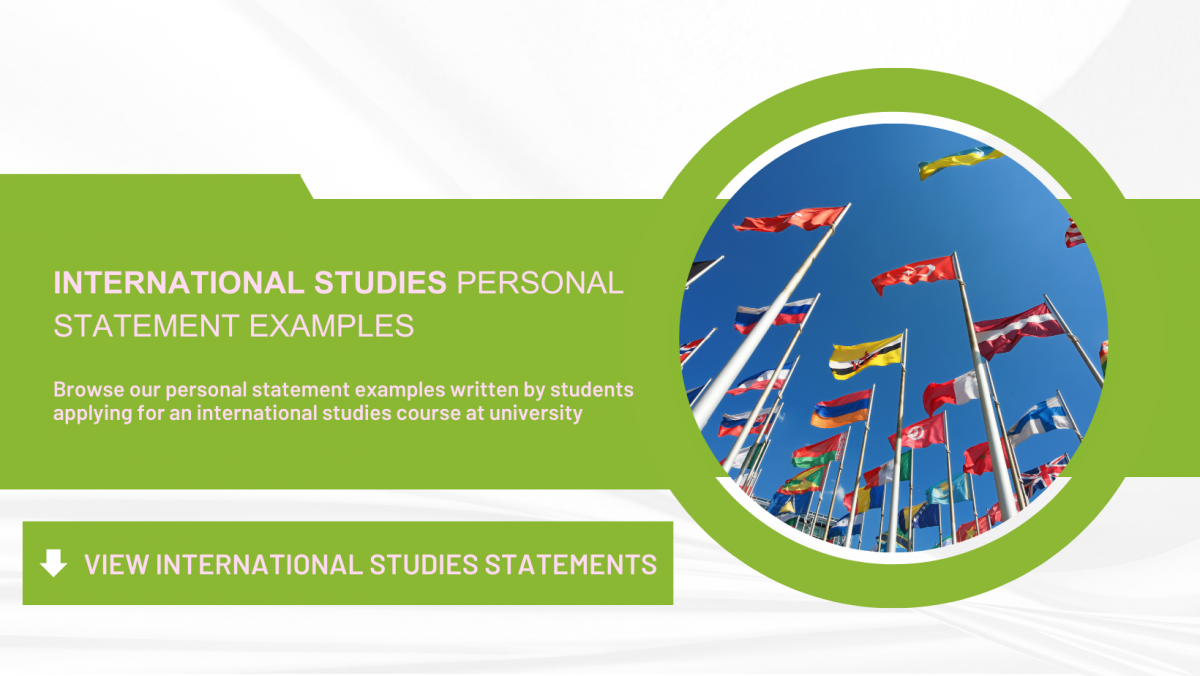
Studying abroad personal statement
- Reading time: 2 minutes
- Price: Free download
- Published: 13th September 2019
- Word count: 557 words
- File format: Text
Growing up in a family filled with Businessmen and Entrepreneurs made my vision change Immensely. I can recall when I was young, I have always loved the way my father ran his company, it made me more passionate about studying in the business field. I always used to go along with my father to work when I was younger just to see and witness how it feels to be in the action. Most of my vacations I have spent in my father’s company. I felt like studying business is the key to many different opportunities out in this world, that’s why I decided to study Business Management.
I can foresee the future of this world, with the technology evolving around us and how fast everything changes, this made me more interested in studying Business, because what I admire the most about business studies is that it combines many factors of life and how to operate through it, and I feel that this is where I belong and I also feel like I can excel in this specific major due to my past experience with studying business studies in high school and also working in my vacations with my father in his company. I supposed that in order to achieve my goals, I had to expand my vision and move to the UK to join a University there because I was certain that the UK education is capable of developing me to be the best version of myself.
Considering Universities in the UK has made me so much motivated because UK Universities are known for their respected level of education and their highly respected reputation. Studying abroad wasn’t my easiest decision to make because I am very connected to my country Egypt and my family and friends, but I had to overcome everything just for the sake of a better education that would help me to accomplish my dreams and be a source of pride to my family and my country. Studying abroad will also have a positive effect on me as a person, it will make me be more independent and will expand my knowledge, education, and my cultural experience.
In High School, I used to enjoy to participate in many extra-curricular activities, I took part in many charity events hosted by my high school, as well as many athletic activities, I took part in the High School Varsity Football Team which made me a better athletic person and also it helped me to make new friends.
Born and raised in an Arab country could be challenging. Arab countries have their own principles and traditions, which may be different from any other country in the rest of the world, but being taught in Modern English School, Cairo which is the best school in Egypt according to rankings by the Egyptian government, has utterly changed my mindset making me a more understanding and a smarter person. Studying at such a high-level institution has encouraged me more to study abroad in the UK. I know for a fact that I definitely wouldn’t have any trouble communicating in the UK because I have been taught by teachers from the UK and the US ever since I started school which made my English language better, therefore I feel like I am confident and qualified to study abroad.
Related personal statements:
- Sustainable development course personal statement example
- History admissions reconsideration request
- Intern personal statement example (including cover letter)
- Leadership PhD personal statement
- Geography personal statement
- College personal statement
- Student body personal statement
- Fashion studies personal statement example
- General personal statement example
Review this personal statement:
Latest reviews:.
There are no reviews yet. Be the first one to write one.
Leave a comment Cancel reply
Save my name, email, and website in this browser for the next time I comment.
Privacy Overview
- India Today
- Business Today
- Reader’s Digest
- Harper's Bazaar
- Brides Today
- Cosmopolitan
- Aaj Tak Campus
- India Today Hindi
Who should consider studying abroad? Know if you are an ideal candidate
Studying abroad can be a transformative experience for many students, but it's not necessarily the right fit for everyone. here are some factors to consider when determining if studying abroad is suitable for you:.
Listen to Story

Numerous students are captivated by the idea of studying abroad. It offers a chance to explore beyond familiar territories, embrace diverse cultures, and acquire valuable knowledge not commonly accessible in conventional classrooms. Living and learning in a foreign country can bring about several advantages, such as personal growth, professional advancement, and a broader perspective on global issues. However, despite its appeal to many, studying abroad may not suit everyone.
Anuj Gupta, CEO of YounGrads, has explored the characteristics of optimal candidates for international education and offers advice on who should consider embracing this chance.
1. Independent and self-motivated individuals
When thinking about studying abroad, it's essential to understand that it encompasses more than just academics. It's about fully engaging in a different culture and becoming adept at living independently in a foreign land. The ideal candidates for this adventure are individuals who possess self-motivation, independence, and the ability to take care of themselves. They should be open to the idea of being away from familiar surroundings and excited about encountering new situations and overcoming challenges.
Residing in another country requires maturity. Students demonstrate independence, manage time effectively, and understand the importance of balancing studies and personal life in a foreign environment. They confront challenges directly, actively finding solutions to hurdles encountered while living abroad.
2. Rich academic experience
Studying abroad offers an excellent academic opportunity, providing students access to courses unavailable at their home university and the chance to learn from top professors worldwide. Exposure to diverse teaching methods enriches academic perspectives and fosters critical thinking skills. For students committed to their education and eager for academic enrichment, studying abroad presents an appealing option.
3. Inspirational individuals
Studying abroad is a valuable and competitive experience. Universities often look for highly motivated students, who have strong adaptability skills and are ambitious, who can embrace the challenge of living and studying in a foreign country. Students who are driven to push themselves outside their comfort zone and gain a broader perspective on their field of study. This also helps them stand out in the job market and achieve their career goals.
4. Financial stability
Securing financial stability is paramount for those considering studying abroad. Despite the exciting prospects, the endeavour entails substantial expenses. Prospective students should prepare themselves for the financial obligations ahead by thoroughly exploring options like scholarships, grants, and loans. Crafting a solid financial strategy allows them to focus wholeheartedly on their academic and personal development, alleviating the burden of financial worries.
5. Adventurers and global citizens
The ideal candidate for studying abroad is someone who craves adventure and is ready to dive into new cultures. They welcome the unknown, leaving behind the comfort of the familiar effortlessly. With curiosity and an open mind, they see studying abroad as a chance to discover the world and gain insights into diverse cultures. Those with a passion for making a positive global impact and a keen interest in interacting with various cultures view studying abroad as an opportunity to expand their horizons and promote international cooperation in our interconnected world.
- Contact Tracing
- Email for Students
- Office 365 Email for Faculty & Staff
- Box Cloud Storage
- For Faculty & Staff
- MyCampus2 Portal
- Pitzer Store
- PitPass Password Manager
- Pitzer Print
- Campus Visit
- Faculty Directory
- Staff Directory
- Office Directory
- Office of Communications
- Mead Hall 130
- 909.621.8219 Fax: 909.621.8798
- 1050 N. Mills Avenue Claremont, CA 91711
Pitzer College admits students of any race, color, national, and ethnic origin to all the rights, privileges, programs, and activities generally accorded or made available to students at the school. It does not discriminate on the basis of race, color, national and ethnic origin in the administration of its educational policies, admissions policies, scholarship and loan programs, or athletic and other school-administered programs.
Weight-loss drugs cost $1,000 a month but less than $25 to make. Why do we pay so much?

New-generation weight-loss drugs can retail for about $1,350 a month, but a new study from Yale University suggests they cost just $22 to make.
Similarly, life-saving insulin can be manufactured for well under $250 a year, the study found, but it took pressure from the Biden administration to bring out-of-pocket costs for many Americans down to about $420 annually.
Everyone likes to complain about how much drug companies are overcharging for medications, but it's been nearly impossible to know how much it actually costs to get a dose from a laboratory bench to a patient's bloodstream.
Now, a Yale postdoctoral researcher has provided rare transparency on the cost of manufacturing weight-loss and diabetes treatments, with some help from Doctors without Borders , a global nonprofit that negotiates with drug companies, and information the pharmaceutical giant Sanofi provided ‒ perhaps by accident ‒ to a Senate committee .
Pulling back the curtain revealed the prices to be "outrageous," according to Sen. Bernie Sanders, who released a statement shortly after the study published late Wednesday in the journal JAMA Network Open . He specifically called out the diabetes drug Ozempic , which has the same active ingredient as Wegovy , a weight-loss drug. Both are made by the Danish drug company Novo Nordisk .
"Ozempic has the potential to be a game changer in the diabetes and obesity epidemics in America," Sanders said in a statement. "But, if we do not substantially reduce the price of this drug, millions who need it will be unable to afford it. Further, this outrageously high price has the potential to bankrupt Medicare, the American people and our entire health care system."
Sanders complained that Ozempic is available for $155 a month in Canada and just $59 in Germany, and called on the company to match the Canadian price in the U.S.
"The American people are sick and tired of paying, by far, the highest prices in the world for prescription drugs while the pharmaceutical industry enjoys huge profits," he said in the statement, noting that Novo Nordisk made nearly $15 billion in profits last year. "A prescription drug is not safe or effective for a patient who cannot afford it."
Novo Nordisk said it is doing what it can to make the drugs more affordable and available.
"While we are unaware of the analysis used in the (new) study, we have always recognized the need for continuous evaluation of innovation and affordability levers to support greater access of our products," Novo Nordisk said in a statement from Jamie Bennett, director of media relations and issues management. "We continue to support greater health equity to those in need of diabetes treatment and care."
The study found Ozempic and Wegovy cost between 95 cents and $5.50 to produce per unit, or no more than $22 a month. Although the highest dose of Wegovy is higher than the full dose of Ozempic, "the main driver" is the cost of the delivery device, a needle embedded in a pen, said Melissa Barber, who led the research.
By Barber's calculations, if Medicare and Medicaid fully covered the cost of drugs like Ozempic and Wegovy for everyone who qualified, it would run taxpayers over $100 billion a year. That's about six times more than the government spends now on Eliquis , used to treat and prevent blood clots and to prevent stroke.
Eliquis is among 10 drugs whose price the Biden administration is negotiating to help make important, lifesaving treatments more affordable.
Barber, who has been researching true manufacturing costs since 2016, said she's just trying to introduce some transparency to an imbalanced system.
"The system we have is companies can charge literally whatever they want," she said. "How much should we be paying Novo Nordisk? There's a big difference between a multiplier of 10 and a multiplier of 10 million."
She noted that Novo Nordisk, Europe's most valuable company, has as its controlling shareholder a charity that is now the largest in the world, wealthier even than the Catholic Church, thanks to these medications. The company was reportedly founded to sell insulin and owned largely by a nonprofit so it would plow its earnings back into research.
Frederick Banting, the Canadian credited with co-discovering insulin, sold the patent for $1 because he thought the discovery belonged not to one person, but to the world.
Synthetic insulin, the new study finds, can be made for about $11 for a box of 5 pens, including the cost of the needle and a 10% profit. But the current sales price is more than five times that, Barber found.
A year ago, Eli Lilly, which makes several types of insulin, capped out-of-pocket costs for the drug at $35 monthly at participating retail pharmacies for people with commercial insurance using Lilly insulin. Sanofi has said that most of those who use its insulin products pay about $15 out of pocket per month, or $180 per year, because of a copay assistance program. Novo, which had reduced the price of one popular form of insulin called Levemir , then announced it would discontinue the product in the United States.
The real-world cost of insulin is often higher than it appears and roughly 1 in 4 to 1 in 7 insulin-dependent Americans ration the drug because of price, Barber said.
Ozempic sells in the United States for over $900 a month. Wegovy, which was recently also approved to reduce the risk of serious heart problems in people with obesity or overweight, retails for about $1,350, although most people pay far less than the list price.
Eli Lilly makes two drugs, in the same GLP-1 class of medications as the Novo Nordisk medications, though it also includes a second active ingredient. Both Mounjaro, for diabetes, and Zepbound , which is the same medication for weight loss, retail for about $1,000 .
All four drugs have been in such high demand that they have been in short supply since winning federal approval. Many private insurers and government-funded Medicare and Medicaid typically don't cover these drugs for weight loss, leaving them out of reach for significant numbers of people who want them.
Novo Nordisk does not disclose detailed information about costs, but Bennett said it spent almost $5 billion on research and development last year and will spend even more this year. Three-quarters of its gross earnings go to rebates and discounts to "ensure patients have access to products like semaglutide," she said in the statement.
The company is spending $6 billion on capital expenditures and another $11 billion to purchase three fill-finish sites from American contract manufacturer Catalent, in large part to meet the demand for GLP-1 products.
Lilly referred in a statement to its commitment to improving access by 2030 to "quality health care" for 30 million people living with limited resources.
The company also collaborates with EVA Pharma to provide affordable insulin to 1 million people with Type 1 and Type 2 diabetes in low- and middle-income countries, largely in Africa, as well as providing $4.3 billion in medicines last year to charitable organizations.
Karen Weintraub can be reached at [email protected]

IMAGES
VIDEO
COMMENTS
The personal statement is a short essay in which the candidate explains how they will apply to the study abroad program and how they qualify for a study abroad scholarship. Candidates may be requested to submit a personal statement as part of the study abroad scholarship application package.
Simply put, a study abroad personal statement is a component of your CIEE application, specifically in the CIEE scholarships and grants portion (which every student should fill out, by the way). It is a brief essay (300 words) in which you explain how a CIEE study abroad program will impact your college experience and/or your future career ...
Mention the hobbies and activities you enjoy in your spare time, and the transferable skills you could apply to your program. 6) Conclusion: Wrap up your personal statement by reinforcing why you should be offered a place. Reiterate why you're an ideal candidate, and the aspirations you have for your time at university.
Towards the end of your personal statement, you can change to the present-tense to give the reader a sense of narrative and purpose. For example: "During my work experience placement, I had the opportunity to…". "From time to time, I volunteer as…". Again, although there are no rules with how you should write, there are some formats ...
Step-by-Step Guide: Creating a Compelling Personal Statement for Study Abroad. Introduction: Embarking on a journey of studying abroad is an exciting prospect. It opens doors to new cultures, perspectives, and academic experiences. However, before you can hop on that plane, there's one crucial step you need to master: crafting a compelling ...
The best personal statements have a clear structure - a compelling introduction, between two and five body paragraphs that give solid reasons or explanations for studying, and a strong conclusion. But before you start writing, make sure you read any instructions that were sent. Not all personal statements are the same so be sure to check what ...
Consider academic, personal, and professional goals. Revision strategies and tips. • Take the most cogent one-sentence summary of your argument (often in the conclusion) and move it to the front. • Highlighter Test: highlight main ideas, literally, to test their sequence and support. • Avoid the "what I did with my life" approach.
Craft a well-written, grammatically correct, and typo-free statement that succinctly conveys who you are and why you are eager to embark on this study abroad experience. Articulate your personal, academic, and career goals, sincerely explaining how studying abroad will impact your future. Share your strengths and past experiences that have ...
15.1K. Save for later. Almost every university will ask you to write a personal statement to gain a clearer idea of who you are and why you want to study a particular course. This is your chance to demonstrate your interests and skills to show that you should be considered for a place. If you're an eighteen year old undergraduate, you have ...
Be genuine: let your unique voice come through rather than trying to fit a mould. Stay focused: keep your statement concise and avoid unnecessary details that don't add value to your narrative. Proofread: always read your statement multiple times, checking for grammar and spelling errors. Get a second opinion: ask someone else to read your ...
For complete information of Study Abroad Programs Contact Edwise International- Overseas Education Consultants, on 1-800-200-3678 (Toll Free) / 08600911333. 80% of the university will ask you to write a personal statement to gain an idea of who you are and why you want to study abroad. Read our guide to writing a personal statement.
The personal statement is a brief essay in which the applicant explains why he/she is applying to the study abroad program and what qualifies the applicant to receive a study abroad scholarship. This resource provides general guidelines for writing a study abroad personal statement. However, specific programs will have different requirements ...
Personal statements are short essays often written as part of an application (for graduate study, study abroad, a job, an internship, a scholarship...). Some personal statement instructions ask specific questions and offer specific length requirements; others leave the topic and length more open and allow you to figure it out yourself. ...
The Study Abroad Application personal statement should be approximately one page long. Occasionally, specific programs will add additional prompts/topics to consider - please always refer to your program's information sheet to see if there are additional instructions. Sometimes, the application may have more specific requirements - ex ...
The key components of a strong personal statement. When it comes to writing your personal statement about studying abroad, there are a few key aspects to keep in mind. First and foremost, be honest! Admission teams can spot a mile away when an essay is insincere, so don't try to fake it. Just be yourself and write about what you're ...
2 Offer Specific Skills. Your personal statement needs to highlight skills that are relevant to studying abroad, not just general academic achievements. The latter will be listed elsewhere in your application packet. Find ways to make your course work relevant to studying abroad. If, for example, you're an honors student, you might highlight ...
Write Your First Draft. Proofread and Edit. Example of Study Abroad Personal Statement. Template 1. Template 2. Template 3. Wrapping Up. Going to a foreign country for an extended period to study can be a daunting but ultimately rewarding experience. It can provide students with new insights into other cultures as well as themselves.
Law Personal Statement Example (International Student) 3. As the daughter of a British mother and a Dutch father who was born and raised in Israel, I grew up speaking both English and Hebrew. My desire to study and practice law developed initially from my genuine interest in legal and ethical dilemmas and how fairness and justice are involved ...
Study Abroad: Personal Statement. This essay sample was donated by a student to help the academic community. Papers provided by EduBirdie writers usually outdo students' samples. "In a lifetime, you must meet a good teacher who changes your life" is a quote from a Hong Kong movie "Little Big Master", and I met my geography teacher ...
In this video, learn how to write a powerful Personal Statement. A Personal Statement can be different from an SOP in terms of content that you include. So i...
Politics and International Studies Personal Statement Example 2. According to Aristotle "If liberty and equality, are chiefly thought to be found in democracy, they will be best attained when all persons alike share in government to the utmost". Reflection on the disparity between the philosopher's idealised maxim of democracy and my own ...
About Myself MBA Studying Abroad. Essay Type: Autobiography. Words: 1195. Pages: 3. This essay sample was donated by a student to help the academic community. Papers provided by EduBirdie writers usually outdo students' samples.
Studying abroad will also have a positive effect on me as a person, it will make me be more independent and will expand my knowledge, education, and my cultural experience. In High School, I used to enjoy to participate in many extra-curricular activities, I took part in many charity events hosted by my high school, as well as many athletic ...
April 3, 2024 Travel Gloria Parrott. I had a wonderful time studying abroad in Italy. Firstly, I really liked immersing myself in the new culture. I would say I was much more prepared for this trip than last year's France study abroad since I had been in Europe before. My favorite place that we visited was definitely Florence.
Exposure to diverse teaching methods enriches academic perspectives and fosters critical thinking skills. For students committed to their education and eager for academic enrichment, studying abroad presents an appealing option. 3. Inspirational individuals. Studying abroad is a valuable and competitive experience.
April 2, 2024 — Pitzer College has removed study abroad programs in 11 countries, including one at the University of Haifa in Israel, from its pre-approved list because they did not meet certain of the criteria outlined in the college's guiding principles for Study Abroad and International programs, specifically, lack of enrollments for at least five years, exchange imbalance, or ...
The study found Ozempic and Wegovy cost between 95 cents and $5.50 to produce per unit, or no more than $22 a month. Although the highest dose of Wegovy is higher than the full dose of Ozempic ...